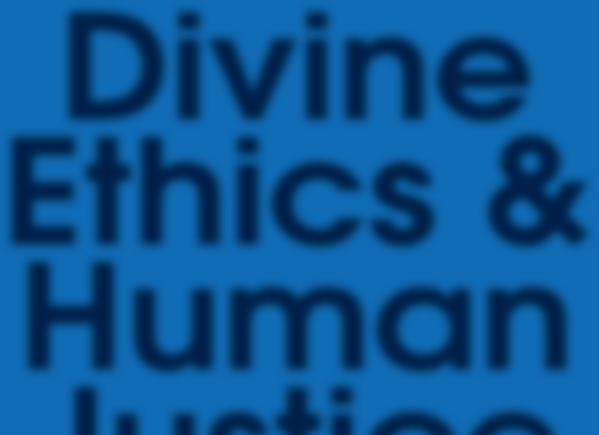TEACHING THE HOLOCAUST
Jewish leaders get rare sneak peek inside Mesa Arizona Temple

Jewish leaders get rare sneak peek inside Mesa Arizona Temple
When Temple Chai’s Rabbi Bonnie Koppell received an invitation to tour Arizona’s oldest temple of The Church of Jesus Christ of Latter Day Saints, she didn’t think twice before accepting.

Rabbi Barton Lee died Monday, Oct. 11. He was 79.

Lee was Hillel at Arizona State University’s first fulltime professional staff member as rabbi and executive director for 42 years before he retired in 2014.

As an ASU faculty associate, Lee taught courses in history, religious studies and Jewish studies and was also an educator with the Bureau of Jewish Education of Greater Phoenix.
In 2011, Lee and his longtime friend and colleague, Rabbi Roy A. Walter, published “My Prayers: A Jewish child’s book of prayers for every day.”
Lee is survived by his wife Marcie; two children, Nira, 33, and Noam, 36; and grandson, 7 months.
Nira Lee said her dad had the kindest heart, was a great listener and loved his work at Hillel.
“I don’t remember a time in my life where he made me feel bad about myself,” Nira said. So many people are quick to give advice and aggressively advocate for what they think is best for somebody else, “and that was not him,” she said. “He would listen and guide the conversation in such a way where it helps you choose the direction. And he never was arrogant enough to believe that he knew better.”
Her dad was also a bit of a goofball, she said. “A lot of people talk about this twinkle in his eyes, and a lot of it was mischief, and silliness,” Nira said. “He never took himself too seriously.”
He used to joke that he loved college so much that he never left.
ongtime community leader and Jewish educator“I felt like the LDS community was reaching out with a hand of friendship, and that’s an important thing to accept — someone’s offer of friendship,” she said.
About 20 Jewish community leaders have toured or visited the temple ahead of its rededication on Dec. 12.

The tour was a rarity. Temples are different from chapels or meetinghouses, where Mormons attend Sunday services and where anyone is welcome to worship. Temples are reserved for special ceremonies, like marriages.
After being closed for over three years for a major renovation, the temple is open to the public for five weeks before it will be sealed. The renovation included new roofing and drainage, windows, furniture, landscaping and a new visitor center.
“The physical spaces are very, very different from what we might expect as a worship space,” Koppell said. “They’re elegantly and beautifully furnished, and there’s a grandeur about them.”
Stanton Curry, who personally invited many of the Jewish leaders who attended, said it is important to build and strengthen relationships with people of different faiths.
COURTESY OF THE JEWISH COMMUNITY RELATIONS COUNCIL OF GREATER PHOENIX
“There are a lot of needs to be served in our community. We’re good at some things; we’re not good at other things, and working in a partnership, we can all get a lot more done,” he said. “We have that kind of relationship with a number of religious groups, including the Jewish leadership in the Valley.”
It’s also nice to invite people over to your house, he said. “People are curious, and there are beautiful things
SEE TEMPLE, PAGE 3
New kosher food pantry in the East Valley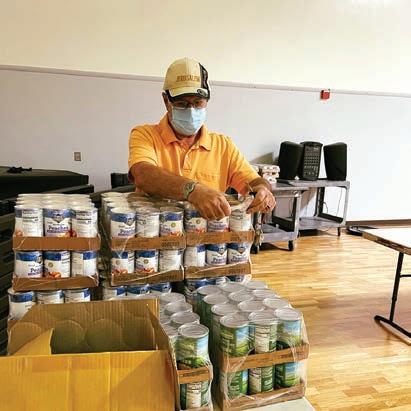
OF LEISAH WOLDOFF

French
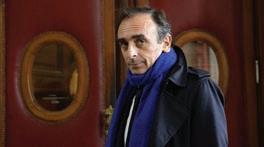
succeeded Barton Lee as executive director for Hillel at ASU, said she has always been “deeply grateful” to Lee for welcoming her to Hillel and the Jewish community in 2013. “He spent significant time orienting me and helping me connect with key friends of Hillel, and he celebrated with me as Hillel continued to grow. I enjoyed connecting to and learning from each other over lunches at Byblos and even a ride or two on his golf cart,” her statement read.
Lee made whoever was in front of him feel like the most important person in the world, “and to Rabbi Lee, they were just that,” she said.
Hava Tirosh Samuelson, director of Jewish Studies at ASU, said Lee imparted his “vast” knowledge of Judaism and his “passionate love” of Hebrew language and literature to scores of students, “inspiring them to be informed, socially engaged and caring. We miss his leadership, generosity of spirit and wisdom.”
Steve Goldstein, the past chair of the Hillel Board of Directors, said Lee was an “institution for not just Hillel at ASU but the entire Hillel International community.” There has been an outpouring of love from ASU students wanting to leave messages for him, which he said is “an indication of the kind of mark he made.” Lee made ASU a welcoming and safe place for Jewish students for decades, he said.
Lee officiated at Goldstein’s daughter’s bat mitzvah in 2004, and Goldstein’s son went on the last Birthright trip that Lee supervised. “He was always extremely kind to our family and we’re going to miss him,” he said.
Shelley Cohn, who served three terms as president of the Hillel board, called Lee an icon. “The thing about Rabbi Lee is that the students were number one. He was dedicated to being present for them for both joyful and challenging occasions,” she said.
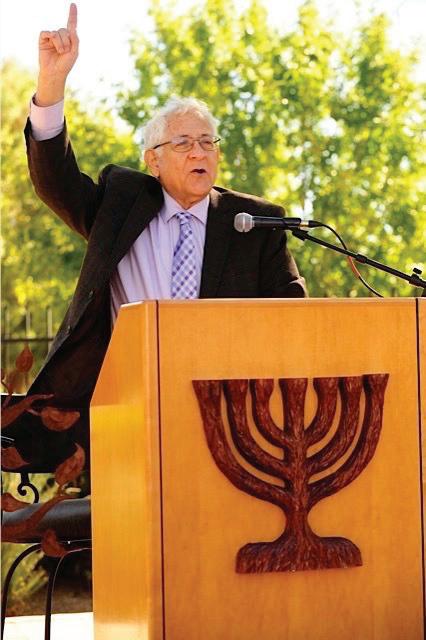
Cohn first met Lee when she was a graduate student at ASU, and like many others, found him to be warm and welcoming.
Ross Kader considered Lee to be his mentor, close friend and rabbi. Kader was an ASU student when he first met Lee and his wife around 2005. “It really helped me just seeing them model their behavior and their approach to Judaism, and just who they were as people was so encouraging. It made me feel more connected to my Jewish roots,” he said.
Kader remembers walking into the Hillel building on ASU’s campus and immediately feeling welcome. “He always made time for his students,” he said. “You could just walk in and students were sitting around in his office and chatting.
He was always so approachable and kind.”
Lee officiated Kader’s wedding, and the two had since kept in touch.
Nira felt like she grew up at Hillel — the campus building was her second home. She used to hide in the art supplies closet upstairs, sleep on the leather couches and raid the kitchen after school for Diet Coke.
“People sharing stories and reaching out is bringing back a lot of memories and reminders of how loved he was and how many people he touched,” she said. “That’s been really special.”
Hillel at ASU is collecting tributes, thoughts, memories and photos of Lee to be shared with his family at a later date. To participate, visit tinyurl.com/rabbileetribute. JN
January 8
January 22
February 5
February 19
March 5
March 12
March 19
March 26
April 2
April 16
May 7
May 21
June 4
July 9
August 6*
August 20
August 27
September 3
September 10
September 24
October 1
October 15**
November 5
November 19
December 3
December 17
OFFICE HOURS
a.m.-5 p.m. Monday-Thursday 8 a.m.-12:30 p.m. Friday
DEADLINES
EDITORIAL: Noon, Tuesday 9 days prior to publication
PUBLISHER
Jewish Community Foundation of Greater Phoenix


GENERAL MANAGER Rich Solomon | 602.639.5861 rsolomon@jewishaz.com
MANAGING EDITOR Shannon Levitt | 602.639.5855 slevitt@jewishaz.com
STAFF WRITER Nicole Raz | 602.872.9470 nraz@jewishaz.com
ADVERTISING SALES CONSULTANT Jodi Lipson | 602.639.5866 jlipson@jewishaz.com


SUBSCRIPTIONS 602.870.9470 x 1 subscriptions@jewishaz.com
GRAPHIC DESIGNER Frank Wagner | 410.902.2300 ads_phoenixjn@midatlanticmedia.com
ADVERTISING: 11 a.m., Friday 3 days prior to publication
Jaime Roberts, Publisher | 2013-2016
Florence Newmark Eckstein, Publisher | 1981-2013
Cecil Newmark, Publisher | 1961-1981
Pearl Newmark, Editor | 1961-1981
M.B. Goldman, Jr., Founder | 1948-1961
PROUD MEMBER OF

to see in there.”
It is only the third time in its nearly 100year history that the Mesa temple has been open to the public, Curry said.

Sheryl Bronkesh, president of the Phoenix Holocaust Association, attended a tour and brought two local Holocaust survivors with her. They all felt extremely welcomed.
When they toured the room containing the baptismal font, the tour guide brought up the past controversy surrounding the church’s former practice of posthumously baptizing Holocaust victims.
“I don’t know if they always talk about it, or they talked about it because they knew that we had Holocaust survivors there, but they addressed it proactively,” Bronkesh said. “I thought that was really good of them.”
In 2010, the church made an agreement with Jewish leaders to stop the practice, acknowledging it had “unintentionally caused pain.”
Tim Eckstein, the board chair of the Jewish Community Relations Council of Greater Phoenix, said there’s “still some lingering hurt” over the practice in the Jewish community, but it’s “important for us to try to move past differences we’ve had in the past.”
Eckstein also toured the temple, and was glad to go on both a personal level and on behalf of JCRC.
“These are incredibly sincere people who are opening their doors and asking the world to come in and see what they’re about,” he said. “Anyone who’s willing to do that, I’m open to accepting that invitation, and I think we all should be — whether we’re community leaders or not.”
Building understanding and strengthening relationships with people across different faiths is essential in building the sort of civil society “that we all want to live in,” he said.
Marty Haberer, president and CEO of the Jewish Federation of Greater Phoenix, said it is very important for the Jewish community to graciously accept any invitation to participate outside of the Jewish world. “The definition of tikkun olam, which

means improve the world, doesn’t mean improve only the Jewish world,” he said. It’s also important that the Jewish community shows that it is a great partner and neighbor, he said.
Touring the Mesa Arizona Temple reminded him of the Temple Mount in Jerusalem. “That was a time when the physical temple was where we believed that God’s shechina, his spirit, was housed. And that’s kind of how they treat their temples.”
He was impressed by the “dignity and perfection” of the building, and said it was refreshing to see that kind of care poured into a physical facility.


Rabbi Michael Beyo, CEO of the East Valley Jewish Community Center, began a friendship with the LDS community about five years ago and was eager to accept an invitation from a friend to tour his temple.
Religion can be used to denigrate somebody else and create outcasts, he said.
“We, as Jews, have been a recipient of that for the last 2,000 years,” he said. Alternatively, religion can be used to create common ground and create a better society with bonds of friendship, “and that is what I would like religion to be,” he said.
Koppell said Jewish people “can’t have too many friends,” and it is always nice to learn about other faiths. She, too, has had longstanding ties to the LDS community, but had never been inside a temple before. The celestial room resonated most with her. It’s a kind of prayer and meditation space that she described as a mix of a living room and a palace. “It always boggles my mind that in that space there’s no talking or eating. It’s the exact opposite of a synagogue,” she joked.
The visitation period that began Saturday, Oct. 16, will run through Nov. 20, and advanced reservations are encouraged.
About 2,500 people toured the temple the week of Oct. 11, about 85% of whom were not members of the Mormon faith, Curry said.
The Salt Lake City-based faith has 16 million followers worldwide. The church’s other temples in Arizona are located in Gilbert, Phoenix, Tucson, Snowflake and near Thatcher. JN
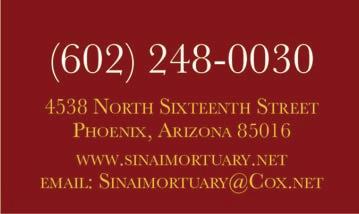
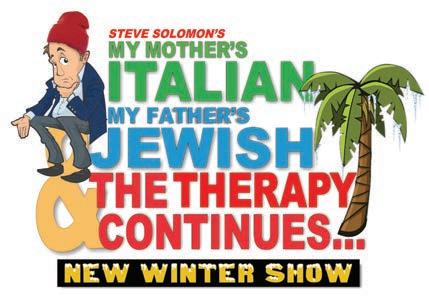
When the family travels home for a winter visit, Steve is thrown together with all his dysfunctional kin in a riotous seasonal celebration. We attend a family dinner at Grandma’s where, if you’re under 55 you still sit at the children’s table, and 35 over-fed people share one toilet! From the creator of My Mother’s Italian My Father’s Jewish & I’m In Therapy, we bring you a new show for the winter season.
“Hysterically Funny!
Non-Stop Laughs All The Way!”
- Regis Philbin, Live With Regis & Kelly
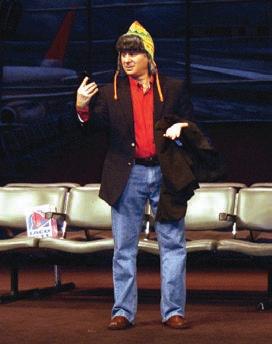
“A Funny Look At Family Relationships!
An Entire Family Wrapped Up In A One-Man Show!”
- WCBS TV
“As Heartwarming As Comfort Food.
Everyone Can Relate to This!”
- Martha Stewart Living Radio
Several Jewish organizations are praising the Chandler Unified School District for its handling of antisemitic remarks made during a governing board meeting on Oct. 27.
An individual from the community, who identified herself as Melanie Rettler, accused “the Jews” of being responsible for COVID vaccines and running a shadow government in Washington, D.C.
Speaking about critical race theory and vaccines — topics not listed on the meeting agenda or discussed by the board — Rettler talked discursively for over a minute before blaming a number of the country’s problems on the Jewish “race:”
“If you want to talk about racism, if you want to bring it in, then let’s bring it in. Let’s get to the bottom of it. We’re talking about white supremacy. OK, let’s get to the very bottom of it. Every one of these things, the deep state, the cabal, the swamp, the elite — you can’t mention it, but I will — there is one race that owns all the pharmaceutical companies and these vaccines aren’t safe, they aren’t effective and they aren’t free. You know that you’re paying for it through the increase in gas prices, the increase in food prices — you’re paying for this and it’s being taken from your money and being given to these pharmaceutical companies and if you want to bring race into this: It’s the Jews.”
Rettler walked away and Barb Mozdzen, board president, addressed everybody in the room: “Comments really need to be related to what the school board can do something about, and this was not something we can do something about. So please have your comments with something that is within our jurisdiction.”
Some Jewish organizations expressed outrage that Mozdzen and other board members didn’t respond more strongly.
The Arizona chapter of the Israel American Council, for example, said it wrote to the CUSD board requesting that “in the future the board members themselves speak up the very moment such hateful lies are expressed.” Their statement follows: “Our history teaches us that allowing such racism to pass unchallenged only invites more of the same.”

The Anti-Defamation League sent a letter to the CUSD governing board and each member expressing concern about the remarks and called the district to “publicly demonstrate — in the strongest possible way their commitment to fighting antisemitism and all forms of hate.”
ADL also stated, “the lack of response from Board members to last night’s public speaker who used blatant antisemitic tropes and stereotypes to promote anti-vaccine and antiCRT views is simply appalling and dangerous.”
However, Terry Locke, a spokesman for
the school district, told Jewish News that it would be a violation of the open meeting law for board members to discuss items that are not on the agenda.
Immediately after interim superintendent Franklin Narducci learned of what happened at the board meeting, he got in touch with representatives of the Jewish community. Rabbi Michael Beyo, CEO of the East Valley Jewish Community Center, said he is pleased and grateful that Narducci sought to collaborate.

“An ignorant person made an antisemitic comment. That’s not newsworthy. What is important is that the superintendent canceled all of his meetings yesterday, in order to deal with this. I dealt with this. I got other people involved to deal with this; this is what is important,” Beyo said.
Narducci collaborated with Beyo to craft a statement that condemned hate speech and denounced the antisemitic statements. “The district reaffirms its commitment to use its influence as a public educational institution to teach students the value of an inclusive community and give them the tools to engage in our increasingly diverse society. Chandler Unified School District denounces hate speech at all levels.”
Beyo’s statement applauded the district governing board, administration and Narducci for “leading by example and speaking out against the hatred of all people.”
Paul Rockower, executive director of the Jewish Community Relations Council of Greater Phoenix, was also in direct contact with Narducci and praised the district’s outreach to and collaboration with the Jewish community.
“The school took ownership of the issue and was in touch immediately with the Jewish community to immediately take a stand on this issue,” he said. “We are grateful for them taking this issue seriously and handling it directly and we appreciate their partnership in fighting against hate.”

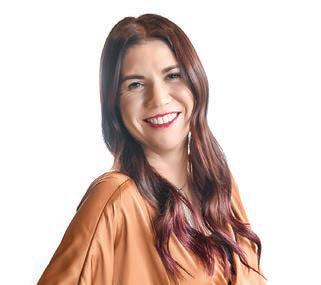
The Phoenix Police Department’s Police Chief’s Jewish Advisory Board is seeking new members.
The board has 20 members, but Detective Mike Hillman, the Phoenix PD’s community liaison to the board, said ideally there would be 25 members.
The board has been around more than 20 years and serves as a bridge between the Jewish community and the police department.
“We’re here, we support you and we’re providing the security we can for you; we want you to feel comfortable; we’re all in this together,” Hillman said.
Hillman, other members of the police department and the board’s leadership held a virtual presentation Monday, Oct. 11 to inform the Jewish community about its work and to urge the reporting of hate crimes.
The partnership is especially helpful in dealing with antisemitic incidents, Hillman and board leaders said.
“If there’s an incident that we need to deal with, or something that has occurred very recently, this is something that I want to pass on to the board members so they can get the information to the communities that they represent,” Hillman said.
For example, on Yom Kippur, a man in a black car drove to a synagogue and asked some suspicious questions, he said. When the security guard at the synagogue alerted him, Hillman was able to quickly warn the other synagogues in the area because of the police’s connection to the board.

Rabbi Levi Levertov, president of the board, said he often gets phone calls from community members about policing and takes them to Hillman.
“He always wants to help out, and he’ll guide them on where they need to be and who they need to talk to,” Levertov said. “You don’t feel like you’re in a black hole of ‘I don’t know where to start.’”
Alan Zeichick, the board’s vice president, said the partnership is all based on two-way communication.
Each year before the High Holidays, Zeichick and the advisory board share best practices for synagogue security with each other and Phoenix police.
He informs the department about communication barriers for some segments of the Jewish community. “If the police decide to pick up the phone and call someone at an Orthodox synagogue during Yom Kippur, probably no one will answer the phone,” he said. “We think they should all know this, they probably all do, but it never hurts to remind (the police).”
Antisemitic incidents happen multiple times a year, and according to the Bias Crime
Unit’s findings, five antisemitic hate crimes have been reported in Phoenix in 2021.
Detective Charlee McDermott, who specializes in bias crimes for the Phoenix PD, said most of the hate crimes this year have been assault and vandalism. But those are only the ones they know about, since hate crimes are “very, very underreported.” She encouraged people to report hate crimes to the police when they witness them.
The Phoenix PD reports all hate crimes to the FBI.
A hate crime is defined as a violent criminal act against a person or property motivated in whole or in part by an offender’s bias against a race, ethnicity, religion, national origin, disability, sexual orientation, gender or gender identity.
According to a recent report, the FBI recorded the largest number of hate crimes last year since 2008, and the Jewish community was once again a top target of religiously motivated crimes.
Regardless of the communication that occurs after a hate crime, Levertov said it is next-to-impossible to prevent a hate crime from happening in the first place.
He believes that everyone should be proud of who they are and report any event that they feel might have been motivated by hate.
Hillman said he’d like to see a couple of younger members join the advisory board — people between 16 and 25. One of the biggest things he looks for in a prospective member of any age is their ability to disseminate information to a large audience. Members also must live or work within the city of Phoenix.
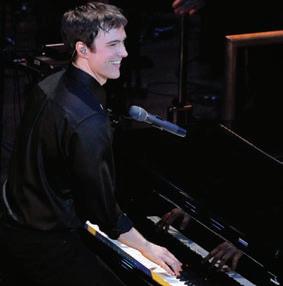

“We’re all one big family. We’re all working together. We all want safety in our communities,” Hillman said.
If anybody is interested in joining the board or has any questions in general, he encourages people to reach out directly at 602-377-9420 or michael.hillman@phoenix.gov. JN
 ELLEN BRAUNSTEIN
ELLEN BRAUNSTEIN
With 2020 lost to lockdowns, Congregation Beth Israel decided last year to hold off celebrating its centennial anniversary until 2021. The party may be a little later than expected, but the memories of the oldest synagogue in Phoenix are flowing and a vision for the future is bright, said Rabbi Stephen Kahn, CBI’s senior spiritual leader for the past 18 years.
“There are very few times in our lives,” Kahn said, “when we get to enjoy a past, present and future moment like a 100th anniversary of a synagogue, especially in the southwest where there aren’t many synagogues that are 100 years old.”
The Reform synagogue, now in Scottsdale, marked its centennial with a special Shabbat evening service on Oct. 22, at its original downtown building on Culver Street.
“We really want to acknowledge that we stand on the shoulders of some really amazing people who founded not only our synagogue, but the Jewish community in the Valley,” Kahn said. “We are always aspirational in the way we look towards the future, especially at a time when congregational Judaism is at a crossroads in North America.”
The kickoff event at what is now the Cutler-Plotkin Jewish Heritage Center will be followed by a year-long celebration, including a speaker series, gala, golf tournament, concert, the commissioning of a new Torah and a trip to Israel.
“We intend to celebrate our history and honor our legacy and many of
our founding members,” said Robin Roeder, chief communal and executive officer.
Jewish settlers in Phoenix began gathering for High Holiday services as early as 1906. The synagogue, then called Temple Beth Israel, was incorporated in 1920 with 38 families. The house of worship became affiliated with the Reform movement in 1935.
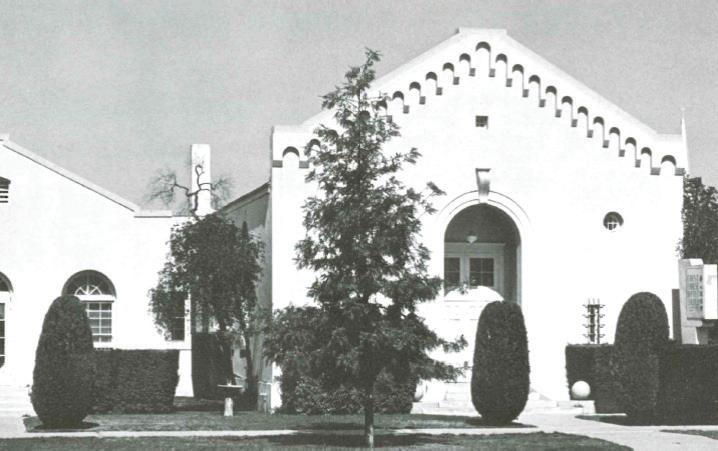
was heavily involved in Phoenix’s Jewish and non-Jewish communities. “Rabbi Plotkin was the go-to Jewish religious leader during his decades of service,” said Martin Shultz, a past CBI board member and longtime volunteer. A public policy executive, Shultz joined the congregation when his family moved to Arizona in 1953. Of Plotkin, Schultz said, “he and other religious leaders really had to work
Lewkowitz, who were founding members. Lewkowitz, a lawyer, remembers his bar mitzvah and confirmation. He has since served as a president of the board, like his father did, and his own son.
Lewkowitz recalls the move after 25 years to 10th and Fowler for a much larger building with classrooms. In 1997, the congregation moved again to its current location at 10460 N. 56th St. and Shea Blvd.
Along the way, Beth Israel became more than just a synagogue. In addition to the Mark L. Haberkorn Religious School, the congregation added the Chanen Preschool and the residential Daisy and Harry Stein Camp in the Bradshaw Mountains surrounding Prescott. The synagogue started a food pantry and built a library of 20,000 volumes. The congregation’s Beth Israel Cemetery is one of the oldest historic cemeteries in Arizona.
Abraham Lincoln Krohn was rabbi from 1938 to 1953. During his tenure, the synagogue flourished, growing from about 100 families with 64 religious school children, to 600 member families.
By 1955, Phoenix’s Jewish population would grow to over 3,000 families with just two synagogues, Beth Israel and the Conservative Beth El Congregation.
Krohn participated in the community as a leader of several secular organizations and Jewish Family & Children’s Service. He was succeeded by Rabbi Albert Plotkin, who served for 36 years.
During his tenure at Beth Israel, Plotkin
hard at bringing moral fiber into what is Phoenix today. That transition from the ‘40s and ‘50s was tough.”
Plotkin, who died in 2010 as a rabbi emeritus, was a staunch supporter of Israel, an advocate for civil rights and a supporter of the arts. He founded the Jewish Studies program at Arizona State University and taught there. He volunteered for 25 years as a chaplain at Phoenix Veterans Hospital.
Plotkin “was the most outstanding in our history, active in the community and a good pulpit rabbi,” said Jerry Lewkowitz. Now 90, he was born into the temple by virtue of his parents Herman and Carrie
“We really go through a full life cycle,” Roeder said. “We look at our total community as very large because of those entities.”
Cantor Seth Ettinger estimates that CBI actually serves an additional 600 families today through its school and camp offerings. Ettinger joined the synagogue four years ago from Wilshire Boulevard Temple, the oldest synagogue in Los Angeles. “I was prepped, if you will, for this congregation being the oldest congregation. They have a lot of pride in their history and we want to immortalize our history and ensure that our history will continue into the next 100 years.”
"THERE ARE VERY FEW TIMES IN OUR LIVES WHEN WE GET TO ENJOY A PAST, PRESENT AND FUTURE MOMENT LIKE A 100TH ANNIVERSARY OF A SYNAGOGUE, ESPECIALLY IN THE SOUTHWEST WHERE THERE AREN'T MANY SYNAGOGUES THAT ARE 100 YEARS OLD."
Nov. 9 | series
The impossible art of survival: the poetry of Paul Celan
Natalie Lozinski-Veach | International Letters and Cultures, ASU
7 p.m. MST | Zoom | registration required jewishstudies.asu.edu/artofsurvival
“To write poetry after Auschwitz is barbaric.” Written in 1955, by Theodor W. Adorno, these words are perhaps the most notorious philosophical statement of the 20th century. Through the work of Paul Celan — a survivor who is considered the most important poetic witness of the Holocaust in the 20th century — together we will explore the role of poetry in the face of unimaginable catastrophe.
Nov. 16 | series
Ghost writing: Phillip Roth, Franz Kafka and Bruno Schulz
Brian Goodman | English, ASU
7 p.m. MST | Zoom | registration required jewishstudies.asu.edu/ghostwriting
How and why American Jewish writers like Philip Roth look to the communist-era Eastern bloc — and to dead writers from the region like Franz Kafka and Bruno Schulz — to help them imagine new ways of writing about the Holocaust in the final decades of the Cold War?

Nov. 30 | series
Poetry and prose after Auschwitz: a roundtable
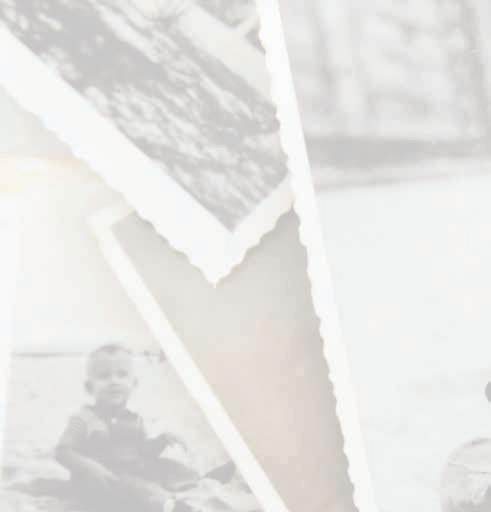

Brian Goodman | English, ASU

Natalie Lozinski-Veach | International Letters and Cultures, ASU
Claudia Sadowski-Smith | English, ASU
7 p.m. MST | Zoom | registration required jewishstudies.asu.edu/Auschwitz
How do different Jewish writers connect across historical time? In this roundtable discussion, the panelists will put their research expertise into direct conversation to answer this question, consider the similarities and differences between post-Auschwitz poetry and prose, and discuss theoretical versus historical approaches to Holocaust literature. Audience questions are encouraged.
Dec. 7 | series
They changed my name: immigration myths and mythologies
6 p.m. | Zoom | registration required jewishstudies.asu.edu/myname
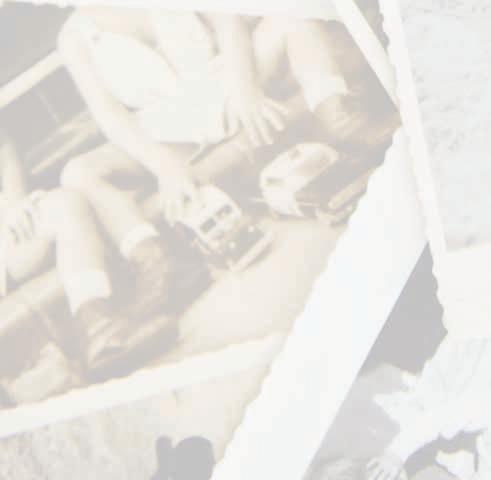
Does your family story include information about a name change at Ellis Island? Learn about this endless myth and the realities of traveling in steerage and arriving in the new country. Discuss first-person experiences of immigrants traveling from Europe to the U.S. in the late 19th and early 20th centuries, and what they encountered when they arrived. Although immigrants arrived in many ports throughout North America, we will focus on Ellis Island, the port where the greatest number of immigrants arrived.
Dec. 14 | series
Challenges in Jewish Ancestral Research

6 p.m. | Zoom | registration required jewishstudies.asu.edu/challenges


Many Jews have grown up thinking no records of family in Europe survived the war. Worse, families often refused to discuss the lives of immigrant ancestors in Europe; name those who remained in Europe; or share places relatives were from. If they were spoken of, towns and villages named often could not be identified on a map. People were referred to by so many different names, it often seemed as though they were five separate individuals.
“Challenges in Jewish Ancestral Research” will discuss why identifying the names of our ancestors, dates of birth, death and marriage and the places they came from are so difficult.

The new leadership team at Temple Chai is working to redefine the synagogue in a time of transition.
“It’s very exciting to be president, because with the help of the board and the congregation, I’m going to be involved in choosing a new rabbi and choosing a new facility,” said David Weiner, an established Temple Chai member and its president as of October. “It’s exciting to see those possibilities and opportunities.”
The synagogue’s longtime senior rabbi, Mari Chernow, left in June after 18 years for a job in Los Angeles, which was closer to family. Then, executive director Debbie Blyn left in July. A month later, the congregation voted to sell its property at 4645 E Marilyn Rd; it has three years to find a new home.
Weiner and Temple Chai’s new executive director, Zach Dunn, who began in October and has been in religious organization leadership for more than a decade, say their first priorities are to confirm a new senior rabbi, create a shared vision for the congregation and decide on its next physical space.
Weiner said the congregation is looking for a senior rabbi who is visionary, focused, loves to connect with people, has the energy to “think outside the box,” takes risks and understands the various ways different age groups engage with worship.
“There’s so many alternative means to prayer and community,” he said. “If temples are going to survive in the future, we have to make sure that we connect with that generation (of millennials, those aged 21 and 39). We need a leader or a rabbi that understands that.”
A new senior rabbi will be in place by July 1, and the interview process is underway. Weiner said he was excited to see the number of applicants for the job.
In a way, this transitional period couldn’t have come at a better time, he added.
“Traditional temples, from what research is telling us, have to change, and we’ve got that opportunity to make that change so we’re relevant in 20 years,” Weiner said.
Half of American Jews attend religious services a few times a year or less, according to a 2020 survey by the Pew Research Center published in May.
Of 11 possible reasons for not attending religious services, the top choice was “I’m not religious.” Other common explanations were “I’m just not interested” (57%) and “I express my Jewishness in other ways” (55%).
Dunn agreed that the timing presents an opportunity given the challenges that religious institutions face in a time where religion “is not the most pressing thing in people’s everyday lives.” Though the
tasks at hand will be challenging, he said the Reform synagogue is going to create “something brand new” for its existing membership and for people it has yet to engage with.
Weiner said he wants to strengthen Temple Chai and see the congregation be a fun, caring and inspirational place.
He is hesitant to give details on his own vision for the temple because he values the process of building consensus.
Weiner has held a variety of leadership roles with the Jewish community, including chairing the Phoenix chapter of the American Israel Public Affairs Committee and the Jewish Community Foundation of Greater Phoenix, which has owned Jewish News since 2016. He is a current board member of the Jewish Community Association, the Jewish Agency for Israel, Oasis High School and is also president of Weiner Insurance.
“From my past roles, I’ve learned that process is extremely important,” Weiner said, adding that it is crucial to follow a process, to listen and to build consensus. “There’s a lot of different opinions, and you’ve got to find the common theme among all of them. And once we identify it, then you need to build a team to implement it.”
The congregation has set up a visioning committee that is getting everyone’s input for a blueprint of the future, he
said. More than 600 families belong to the congregation, he said.
Dunn said the future is unclear, but “it’s clear that we have a future. What that is, we’re going to work out together.”
Dunn has experience helping to lead religious institutions through change. He was the executive director at Congregation Mishkan Tefila in Brookline, Massachusetts, while it reinvented itself after selling its building.
Temple Chai sold its space to Scottsdale Christian Academy this summer. Under the arrangement, Temple Chai will lease the current building for two years while a new location is found and voted on. A third year of leasing is available if the congregation does not make a decision by that time.

Temple Chai Rabbi Bonnie Koppell said she is excited by the new leadership team and new staffing additions in general, including a new early childhood center director, and additions to the Deutsch Family Shalom Center.
“Everyone is so talented and so positive,” she said. She, too, is excited for the possibilities of an open-ended future. She wants to hang onto everything that has made Temple Chai “so special throughout the years,” but looking at a new possible facility is “an enormous opportunity,” she said. JN
Books line the dining room table and even the floor at Ettie Zilber’s house, and more are on the way. All the books are about the Holocaust. Zilber will soon deliver them to the Arizona Department of Corrections, Rehabilitation & Reentry.

On Sept. 29, Kaleb Cole, who led a NeoNazi hate group to target Arizona Jewish Life editor Mala Blomquist and others last February in a coordinated hate campaign primarily against Jewish journalists and journalists of color, was convicted of five federal felonies.
“It triggered a memory of a very well-known Holocaust survivor, Eva (Mozes) Kor, and how she would go into prisons and speak to the inmates. And I thought, ‘Maybe we could help with educating the inmates in the prisons about the Holocaust, which is one of the biggest hate crimes in history,’” Zilber said.
Kor worked tirelessly to spread the message of forgiveness after publicly forgiving all of the Nazis, including Adolf Hitler and Dr. Josef Mengele, who conducted experiments on her and her twin sister at Auschwitz. Kor last spoke with inmates in June 2019, just weeks before she died of a heart attack at age 85.
Zilber, a Phoenix Holocaust Association board member, formed a partnership with the corrections department to bolster Holocaust education for inmates working toward their high school diploma.
“It’s grown into a big project, and that’s great because it’s an indication of interest and understanding about how important the topic is and how it can benefit everybody,” she said.
An ADCRR spokesman declined to comment on what Holocaust-related programming and/or educational resources are currently in place, if any, and how this collaboration can benefit inmates.
“Being that it is still in the works, there is not much to say except that we are excited to partner with Ettie and the PHA,” the spokesman said.
The PHA has survivors present to groups and schools, and Zilber hopes to provide that service to the prison system as well. Because of the pandemic, speaker presentations will have to be pre-recorded or virtual, she said.
Sheryl Bronkesh, PHA’s president, said the organization has only worked sporadically with the prison system in the past — a few years ago a prison facility in Florence requested a speaker, for example.
“I don’t know why we never reached out,” she said, but she is glad Zilber had the idea and spearheaded the new partnership.
“Maybe we can help some people who haven’t had that education, whether they have no feelings about Jews, or whether they hold very negative views about Jews,” she said. “But
Contribute to the aerodynamic development of Nikolas vehicles from concept phase to nal production prototypes. Perform aerodynamic analyses using CFD tools. Req’s Master’s Degree in Aerospace Engineering, Aeronautical Engineering or closely related discipline with a major focus on Aerodynamics and 6 mos in CFD simulations. 3D modeling using NX/Solidworks/Catia.
Senior Engineer, Controls:
Develop control systems for electric vehicle powertrains, as well as engage in calibration and testing of the systems on various platforms such as MIL loop/HIL Vehicle. Model devel using MATLAB/Simulink. Req’s: Master’s degree in Auto, Electrical or Mechanical engineering or related w/1 yr exp with embedded control systems.
Technical Specialist, Autonomous Driving Lead Dev. Engineer :
mistreated. I believe, unfortunately, that your early childhood was not a happy one.
“Yes, I had all the reasons to be angry with the world. I realize that some people cannot forgive but forgiveness is not for the perpetrator. If it helps them, so be it, but I am thinking about myself. What can I as one human being do without hurting anybody — because I never wanted to hurt anybody — and make a difference in my life?
“I changed the relationship between Germans, Nazis and me.”
Zilber said she has received “many, many memoirs” as well as educational DVDs. She was also grateful to have received “The World Must Know” by Michael Berenbaum, and “The Holocaust by Bullets” by Father Patrick Desbois, both of which she considers must-reads.
She made her first delivery to the prison system on Monday, Oct. 18. She was able to collect around 600 books. “I have been driving all over the Valley collecting donations,” she said. “We will still have books arriving after Oct. 18 and, of course, we will make future deliveries.”
The PHA has been at the forefront of formalized Holocaust education since 2018, when it began efforts to push the state to mandate it. In 2020, the Arizona State Board of Education added Holocaust education to Arizona education standards, and in July, Gov. Doug Ducey signed a law requiring Arizona public schools to teach about the Holocaust and other genocides at least twice between seventh and 12th grades. The PHA has been working with the Department of Education and many education institutions to create a toolkit for educators with resources on how to teach the Holocaust.
“That’s the big project, and this is one more project under that umbrella,” Zilber said. JN
In-house software devel in autonomous driving features from SAE L2 to L4; Req’s Master’s Degree in Electrical, Electronic or Automotive Engineering and 24 mos of auto industry work experience with leading Advanced Driver Assistance System (ADAS)/ Autonomous Driving (AD) devel. Travel req’d
Exterior Industrial Designer:
Design product and assemblies in accordance with PFMEA and DFMEA. No degree required; 5 yrs exp, pro ciency in CATIA V5, V6, and 3DX .
Systems Engineering Lead, Vehicle Integration:
Responsible for establishing VTS using JAMA, CAD design and PLM tools. Req’s: Master’s Degree in Mechanical Engineering or related 2 yrs in design and 3D modeling. Travel req’d
Lead Veri cation & Validation Engineer:
Creation of Vehicle Validation Plans, Vehicle System DVP&Rs design, test proced, and support development of subsystem test proced; Req’s Masters degree in Mech. Eng., or related w/1.5 yrs exp using CAE resources and VSA. Travel req’d
Technical Specialist, Mechanical Design:
Collaborate with cross-functional teams, suppliers, mfg, testing, and validation teams on the complete life cycle of the project through product launch, and implement lessons learned on subsequent products. Req’s Masters degree in Mech Eng., or related w/3 yrs exp of auto industry mech, design or product devel. Travel req’d
Systems Administrator:
Assess systems needs of org, and keep systems operating e ciently; manage the con g of Jira and Jama sftw in addition to owning the tracking sftw and mgmt tool. Req’s Bachelors degree in Comp Science or I.T., w/3 yrs exp as a System Admin, Sftw Eng or related. Exp in Atlassian, using JIRA and JAMA and databases.
Chaparral High School is presenting
“I Never Saw Another Butterfly” for four days starting Tuesday, Nov. 9.
It is the second Holocaust-related play the school has put up since 2007, and the production is supplemented by presentations from Holocaust survivors and a mini-museum of Terezin, the concentration camp featured in the play.
“What I love about Chaparral producing this play is that Holocaust education can be done in such a variety of ways,” said Adena Astrowsky, who initiated the idea for the production.
Her three kids, including her oldest daughter, Sarah, 17, have long been interested in and participated in theatre. With Sarah graduating from Chaparral in May, Adena thought it would be special to have the school incorporate Holocaust education into its theatre program.
Adena wrote “Living among the Dead: My Grandmother’s Holocaust Survival Story of Love and Strength,” a book about her grandmother’s survival, and is a founding member of 3GAZ, a group of third-generation descendants of Holocaust survivors. She is also a Phoenix Holocaust Association board member.
“It’s really beyond my child or my children being involved,” she said. “It’s about their friends in the theater department, at school, and our friends in the community being involved.” She wants regular community members to see “not only what’s going to be a fantastic production,” but also to connect with the play in a way that helps them learn something more about the Holocaust.
“It’s really become so distant from our everyday life,” she said. “It seems like with a blink of an eye, another decade is behind us. But the lessons from the Holocaust are obviously so relevant today.”
Ed Como, Chaparral’s theater department head, said he was completely open to producing a Holocaust-related play when Adena approached him about it, but wasn’t sure which one to go with. Adena sent him a list of possibilities, and “I Never Saw Another Butterfly” resonated most.
“The play is just really powerful,” he said. “I feel a sense of responsibility with it that I don’t always feel with every show.”
The play is only 30 minutes, which he liked. When he directed “The Diary of Anne Frank,” he had to include an intermission, which somewhat “diminished” its power, he said.
He also likes the messages of the play. “Within it, I felt there were also light moments. It wasn’t just complete
darkness,” he said. “The message at the end is to try to be able to somehow move forward after something that is so horrendous.”
The play, told through the eyes of survivor Raja Englanderova, is based on the poetry and drawings created
grandmother who was also a child when the Holocaust began.” She said the play has helped her better understand her great-grandmother’s pain and experience.
Como estimates a handful of the 14 students in the production are Jewish, including Noah Hatton, 18.
the privilege he has. “A lot of the time we take for granted what we have,” he said.
Sarah agreed, saying the play has made her appreciate the freedoms she enjoys. “Like one of the lines from the play, which is so true now, ‘that the world is full of loveliness.’”
Sarah and Hatton said preparing to perform in “I Never Saw Another Butterfly” is a lot different from preparing for other plays they have been part of.
“In some previous shows the characters were fun or funny which allowed us to goof off, talk frequently to our friends and smile more often,” Sarah said. “That is not the case with this show.” Socializing is only before rehearsals begin. “We all feel a duty to produce the best show possible to allow the audience members to connect to our characters and understand the plight of the children from Terezin.”
Hatton agreed. “We have a lot more respect for the show itself, and it’s definitely a very different experience from the other shows that I’ve been in.”
The play will be performed Nov. 9, 10, 12 and 13 beginning with a 30-minute talk with a local Terezin Holocaust survivor, or the child of one. The play begins at 7 p.m., with time allowed for viewers to see an art installment on the Terezin concentration camp.
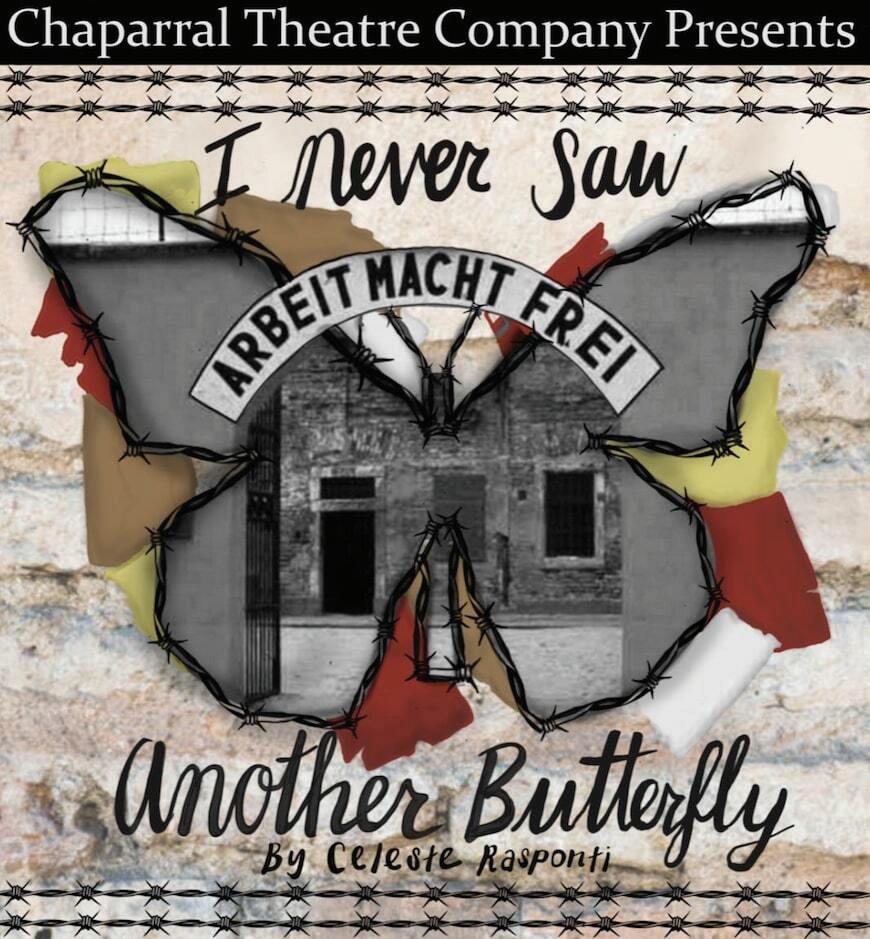
Adena happened to visit Terezin over the summer and took some photos herself that will be displayed, and also helped to purchase the rights from the U.S. Holocaust Memorial Museum and the Jewish Museum in Prague for several images that children created in Terezin.
One side of the lobby will have the pictures of the concentration camp, and the other side of the lobby will have pieces of the children’s artwork, Adena said.
There will also be 1,000 butterflies made of clay and other supplies made by Cocopah Middle School and Mohave Middle School students that will be incorporated into the display.
by Jewish children at the Terezin concentration camp between 1942 and 1944. Englanderova shares her story of living in the camp, while retaining an imaginary world filled with butterflies and flowers shared with the camp’s children.
Sarah auditioned for the play and was cast as an ensemble member.
“Being a fourth-generation Holocaust descendant, participating in this play is very important to me,” she said. “This show is a way for me to honor my great-
Hatton said he did not grow up with a strong Jewish education, and learned a lot about the Holocaust from this play. “I didn’t know much about what actually went on in those ghettos, so it’s really interesting to learn about the poems that they wrote and how they lived.”
Acting in this play has given him more respect for Holocaust awareness, he said. “Doing this play really makes me feel a part of how those kids must have felt at the time.” It’s also made him appreciate
Adena reached out to Cocopah because it is a feeder school into Chaparral, and to Mohave because it was very involved in the Phoenix Holocaust Association’s Violins of Hope program.
Como and the students involved in the play hope to perform the show again during the Edinburgh Festival Fringe in Scotland next summer. Chaparral’s theatre department applied and earned the honor to attend the festival, and Como thinks “I Never Saw Another Butterfly” would be the best play to feature. JN
"WE ALL FEEL A DUTY TO PRODUCE THE BEST SHOW POSSIBLE TO ALLOW THE AUDIENCE MEMBERS TO UNDERSTAND THE PLIGHT OF THE CHILDREN FROM TEREZIN."
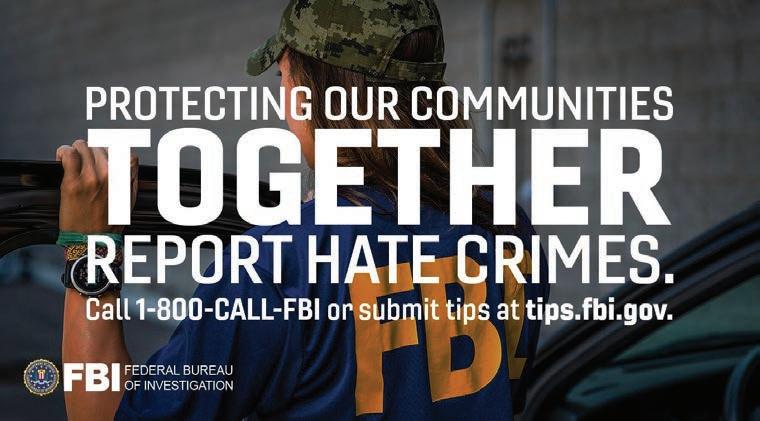 NICOLE RAZ | STAFF WRITER
NICOLE RAZ | STAFF WRITER
New billboards are up in Phoenix and Yuma urging people to report hate crimes to law enforcement.
The Phoenix field office of the Federal Bureau of Investigation is participating in a nationwide effort to increase public awareness of hate crimes.
“We know that, historically, hate crimes are underreported,” the FBI said in a press release. “To help our community recognize the importance of the issue and to encourage people to report incidents to law enforcement, the FBI in Phoenix is launching a hate crimes awareness campaign throughout the state.”
A hate crime is defined as a violent criminal act against a person or property motivated in whole or in part by an offender’s bias against a race, ethnicity, religion, national origin, disability, sexual orientation, gender or gender identity. The FBI asks people to report potential federal hate crime violations by contacting 1-800-CALL-FBI or tips.fbi.gov.
The billboards are just one way the FBI is getting the word out. The bureau also took out several radio, social media and newspaper web ads — even ads at the Tucson International and Flagstaff
Pulliam airports. The local campaign launched Oct. 1.

According to a recent report, the FBI recorded the largest number of hate crimes last year since 2008, and the Jewish community was once again a top target of religiously motivated crimes.
Of the 1,174 religiously motivated hate crimes reported to the FBI in 2020, anti-Jewish hate crimes accounted for 57%. The number of anti-Jewish incidents decreased last year relative to
2019, but still made up the majority of hate crimes based on religion. The majority of incidents targeted individuals directly; 53% involved vandalism or property destruction, 33% involved intimidation and 10% entailed either simple or aggravated assault.
The FBI recorded 19 anti-Jewish hate crimes in Arizona, which has averaged 20 anti-Jewish hate crimes per year for the last decade, according to Carlos Galindo-Elvira, director of community
engagement and partnerships at Chicanos Por La Causa. Galindo-Elvira previously served as the director of the AntiDefamation League of Arizona.
Speaking to the local Jewish community in June, special agent Dan Johnson of the Phoenix FBI urged people to report any red flags or concerns.
“There is nothing wrong with communicating your anxiety, your concern about a person to me or my colleagues,” Johnson said.
One of the most important ways law enforcement confronts extremism is by building relationships in communities.
A primary part of Johnson’s job is meeting new people and raising awareness about what a hate crime is, so people can identify if they’ve witnessed one or been a victim of one — and, most importantly, notify him or others in law enforcement.
The FBI has studied those who have committed “the most heinous acts” and found what “behavioral conditions were present in them before they acted,” Johnson said. A lot of these things were seen by the people around them.
“If something appears threatening it might be a threat and we’re the ones who will be in the best place to know,” he said. JN
We think you’ll find that our accreditation is only one of the many reasons to take a good look at Maravilla.
Antisemitism was the focus of two national surveys released last week. The first was by the American Jewish Committee and the second by Hillel International and the Anti-Defamation League. Both surveys made clear that antisemitism is very much on the minds of American Jews, who consider it more and more of a problem.
But a question has been raised about alleged sleight of hand and related legitimacy of some of the more explosive conclusions in the AJC survey. In an eye-opening column in the Forward, Laura E. Adkins took issue with, among other things, AJC’s assertion that 3% of American Jewish adults reported they were “victims of antisemitic physical attacks” in the last year. As pointed out by Adkins, 3% of 5.8 million American
Jewish adults means that roughly 174,000 Jewish adults reported being victims of physical antisemitic attacks. That can’t be right. If it were, we would have heard about it.
The problem is that the margin of error in the AJC survey is 3%. That means it is just as likely that there were no physical antisemitic attacks in the United States last year as it is that there were 174,000 of them.
We have no doubt that the AJC survey was conducted properly. But we question the wisdom of promoting a headlinegrabbing conclusion based solely on margin of error analysis. That said, there are important takeaways from the survey. Eighty percent of American Jews believe that antisemitism has increased over the past five years and almost a quarter
have some fear of being identified as Jewish. Nonetheless, more than half of respondents said they still feel secure in the United States.
The Hillel/ADL survey released at roughly the same time covers college students and campuses. That survey’s results are easier to digest and its takeaways more concrete. According to that survey, a majority of Jewish students feel secure on campus, even though there are still too many who feel threatened. Thus, while 80% of Jewish students take pride in their Judaism, only 62% feel free to share that feeling publicly.
We didn’t need either of the surveys to convince us that antisemitism is a serious problem in the U.S. and on college campuses. And nothing in either of the surveys will likely impact what each of
our communities must do to make us all feel more secure. There are, however, upgrades to how college campuses should deal with the issue, many of which are outlined in the Hillel/ADL summary and conclusions section of their report, including affording Jewish students the same protections as every other minority on campus.
We encourage more comprehensive studies of antisemitism in America and on college campuses. But in reporting results, care must be taken to avoid sensationalism and naked grabs for headlines and attention. We benefit more from hard facts and verifiable findings, as our community needs that information to guide efforts to upgrade protections and programs to help enhance Jewish life. JN
estselling Irish novelist Sally Rooney has joined the Boycott, Divestment and Sanctions movement by refusing an offer from Israel’s Modan publishing house to translate and publish her latest novel, “Beautiful World, Where Are You?” in Hebrew.
Rooney joins top-shelf writers such as Arundhati Roy, China Miéville, Junot Diaz and more. Alice Walker, commonly cited as a leading literary BDS supporter, actually published “The Color Purple” in a Hebrew edition in 1986 and over 25 years later refused to allow a new translation. Rooney made a similar antagonistic shift, for she had already published two novels in translation through Modan.
Sometimes there are conflicting messages, as when Viet Nguyen, who endorsed BDS shortly after winning the Pulitzer Prize, later posted a photograph on Facebook of himself holding up a new Hebrew translation of “The Sympathizer.” The late Henning Mankell, who was committed to the Palestinian cause, declared that his books would no longer be translated and sold in Israel, then later moved off this stand.
Literary BDS speaks to a willingness to close down communication with at
least half the Jewish world and will come to little in the long run. Translation and its massive force in the global publishing industry is vastly more powerful than the refusal of any writer, or a group of writers, to permit translation of their work into a specific language.
Viewed in this global context, Rooney’s decision is not a moment of ethical clarity but of blindness. She refuses to see that translation speaks to readers, not to governments and their policies. If observation of human rights were Rooney’s true standard, then her list of translation editions would dwindle to a small handful of national languages whose deserving countries have commendable records.
The question of why Rooney permits Chinese translations of her work, considering the oppression being endured by the Uyghur and Tibetan peoples, remains relevant. Double standards speak towards discrimination and bigotry.
Somehow Rooney and other BDS supporters expect the diasporic half of the Jewish world to do nothing, or indulge a false political fantasy of widespread Jewish anti-Zionism that supports boycotting Israel. Quite the opposite can be observed. The spread of BDS antisemitism, especially in academic quarters, has provoked a strong reaction
of intellectual and activist engagement with the renewal of antisemitism.

Much of this reaction has centered on recognition of BDS as a contemporary form of racism. The idea that the moral improvement and conversion of Jews can be effected through communal isolation and boycotting is perhaps the oldest form of organized racism in Western history. It birthed the ghetto.
This animating concept of BDS can be traced at least to medieval Europe and efforts to stigmatize, isolate and then destroy Jewish communities. BDS appropriates human rights rhetoric and marries it to a very old, repugnant idea in order to aim for no less than liquidation of the Jewish homeland.
Cross-cultural expressive forms such as literary translation, music and art are the antithesis of containment, which makes them a particular challenge to those who demonize Israel and demand its expulsion from global civil society.
Rooney and other proponents of targeted cultural rejection have forgotten that translation thrives despite political animosities and boycotts. It flows effortlessly over and around borders, prohibitions and copyright conventions (hundreds of unauthorized online translations of J.K. Rowling and J.R.R. Tolkien testify to this last point).
A long-retired colleague from Peking University recalled to me about how during the Cultural Revolution she and a couple friends made an unauthorized Chinese translation of Erich Segal’s 1970 romance, “Love Story.” There was no hope of publication for a text that would have been condemned as decadent bourgeois, anti-revolutionary American garbage. Despite the danger of denunciation and severe punishment, they circulated the novel in typescript copies and enjoyed themselves.
When China-U.S. relations were nonexistent in the 1950s, Chinese translations of U.S. literature were substantially more numerous than before China’s 1949 Revolution. Numerous unauthorized Hebrew translations of Arab writers appeared in the 1950s and 1960s despite an official Arab League boycott. Joseph Brodsky and others produced Russian-language underground samizdat translations that percolated through the anti-Stalinist intelligentsia in the former Soviet Union to profound effect.
Translation into and from Hebrew will not slow or halt because of one writer’s well-publicized fiat. Hebrew remains borderless and a vigorous participant in global literary culture. JN
We are a diverse community. The views expressed in the signed opinion columns and letters to the editor published in the Jewish News are those of the authors. They do not necessarily reflect the views of the officers and boards of the Jewish Community Foundation, Mid-Atlantic Media or the staff of the Jewish News. Letters must respond to content published by the Jewish News and should be a maximum of 200 words. They may be edited for space and clarity. Unsigned letters will not be published. Letters and op-ed submissions should be sent to editor@jewishaz.com.
“G-E-T-Z … yes, that’s a Z at the end.”
I find myself saying this a lot these days. I have a new awareness now, though, that makes me wary when the follow-up questions inevitably start.
Changing my surname has been a learning curve for me in ways I did not expect. Having wrestled with deciding whether to change my name or not after marriage (I still legally hold both names for now), I grew to love the idea of us sharing this name as we started a new chapter in our lives.
In the beginning, the novelty of my married name made me answer these questions with excitement. I was proud to share in my husband’s culture and heritage and I knew our name was uncommon where I live, in a country with a small Jewish community.
I am from Belfast in Northern Ireland, and I had never met a Jewish person until I met my now husband.
My knowledge of antisemitism, and indeed Judaism, had been limited to my reading of Anne Frank’s diary as a teenager and a movie about concentration camps shown in a history class in school. It horrified me and left a
were born to: Catholic or Protestant. I remember being aware that my own name was deemed “neutral,” meaning people couldn’t tell by my name alone what my religion and upbringing were, and I knew that this was a privilege
MY SURNAME ALONE SEEMED TO BE ENOUGH TO PROVOKE CRUELTY FROM PEOPLE I KNEW, PEOPLE I CONSIDERED FRIENDS. I COULD NEVER HAVE IMAGINED JUST HOW LONELY THIS WOULD FEEL. I WAS HEARTBROKEN TO UNDERSTAND HOW REGULAR AN OCCURRENCE THIS HAD BEEN IN MY HUSBAND'S LIFE, NO MATTER WHERE HE WAS IN THE WORLD.
lasting impact, but it was consigned to the past and something that had happened elsewhere. What I knew and experienced in the city that I have called home my whole life was that a name can signify which side of the religious divide you
and a kind of safety.
When my husband moved here from New York at the beginning of the pandemic so we could marry, I never imagined he would feel uneasy here. I am not Jewish, so I had not experienced antisemitism up close and personal
before. I knew, like everywhere, Belfast had its own brand of bigotry, but it was specific to us and I believed it wouldn’t touch him. Northern Ireland is, after all, a changed and peaceful place.
But then there were the signs. Some were trivial: the constant comparisons of him to any Jewish celebrity that a person could recall in a moment, from Josh Groban (who was not actually raised Jewish) to, somewhat bizarrely to me, Woody Allen. Some were sharper: questions about how comfortable I was having a surname with a ‘Z’ in it. Did I know it was the name of a car model? And what were my thoughts on the circumcision of our non-existent sons?
I felt uneasy and confused, unsure of what exactly I was experiencing. All I knew was that I didn’t want to tell my husband the things people were saying to me, as I wanted him to feel at home.
Afew years ago a colleague called to interview me for a book he was writing about journalists who worked for Jewish publications. I told him that it would be the first book in history whose readership would overlap 100% with the people being interviewed.
That’s a little bit how I feel about books that look deeply into the ins and outs of Jewish communal affairs: the admittedly small genre of synagogue tell-alls, studies of Jewish philanthropy, scholarly work on how Americans “do” Judaism. Of course, I eat these books up — it’s my job and passion. But I suspect I am a distinct minority within a minority.
I also suspected Mark Oppenheimer’s new book, “Squirrel Hill: The Tree of Life Synagogue Shooting and the Soul of a Neighborhood,” might be similarly narrow in its scope and audience. In some ways it is, but that is also its strength: In describing the Oct. 27, 2018 massacre of 11 Jewish worshipers in Pittsburgh and how individuals and institutions responded, he covers board meetings, interviews clergy, takes notes on sermons and reads demographic studies by Jewish federations. The result is a biopsy — or really, a stress test — of American Jewry

in the early 21st century, the good and the bad.
And as a result it tells a bigger story about and for all Americans in an age of mass shootings, political polarization and spiritual malaise.
First the good: The Squirrel Hill in Oppenheimer’s book is a model of Jewish community building — home to the rare American Jewish population that stuck close to its urban roots instead of fleeing to the far suburbs. The neighborhood boasts walkable streets, a wide array of Jewish institutions, a diverse public high school and local hangouts that serve as the “third places” so elusive in suburbia.
Oppenheimer credits a federation leader, Howard Rieger, who in 1993 spearheaded a capital project that kept the community’s infrastructure — “from preschool to assisted living” — in place and intact.
The universal outpouring of support after the shooting also showed American Jewish life at its best. Offers to help flooded in from Jews around the country and the world. Non-Jews rushed to assure Jews that they were not alone. Barriers fell between Jewish denominations, and people put politics and religion aside to focus on the qualities and threats that unite them.
The downside is a photo negative of all that’s right about Squirrel Hill and American Jewry. The diversity and
demographics of Squirrel Hill are a reminder of the more typically segregated way of American Jewish life — religiously, racially and economically. Orthodox and non-Orthodox Jews spin in separate orbits. Many white Jews rarely interact with people of color who aren’t cleaning their homes or taking care of their kids.
As for the support that flowed in: Oppenheimer also describes the ways the offers of help could feel both patronizing and self-serving, as outside Jewish groups and “trauma tourists” rushed in without considering the needs or feelings of the locals. One New York-based burial society sent “experts” to help the provincials tend to the bodies of victims; they were not-so-politely told that the locals had it under control. There’s a sad and hilarious profile of an Israeli medical clown who, like so many clowns, ends up sowing more confusion than comfort.
Oppenheimer also complicates the rosy portraits of Pittsburgh’s “Stronger Than Hate” response to the shootings. While the Jewish community remains mostly grateful for the shows of solidarity, there were missteps and miscommunications along the way. Even one of the most iconic images of the shooting — the Kaddish prayer written in Hebrew characters on the front page of the Pittsburgh Post-Gazette — has a complicated backstory that ended with the departure
of the newspaper’s editor.
Internal divisions are on display as well: Jewish progressives who protested President Trump’s visit to Squirrel Hill after the shooting argued with “alrightniks” who either supported Trump or felt his office should be respected. Victims’ families reacted angrily after a local rabbi dared bring up gun control during an event on the one-year anniversary of the shootings. The rabbi later apologized for appearing to break an agreement that his speech would not be “political.”
Perhaps most of all, “Squirrel Hill” describes American Jewry at a crossroads, with Tree of Life as a potent symbol of its present demise and future possibilities. The synagogues that shared space in the building drew and still draw relatively few worshippers on a typical Shabbat, and those who come tend to be older. While the Tree of Life shooting galvanized a discussion about whether Jews could ever feel safe in America, America’s embrace of Jews has left non-Orthodox synagogues empty or emptying.
Tree of Life will apparently be rebuilt as a complex that will be “part synagogue, part Holocaust museum, part 10/27 memorial.” Whether anyone will come is another story. In his High Holiday sermon a year after the attack, Jeffrey Myers, Tree
I took my husband’s Jewish last name. Here’s what it taught
Rebecca, who may be the world’s first hovering helicopter mother, and the question of how this Torah behavior serves as a good example of what not to do as we attempt to “see” our children.
his week’s parshah contains the famous story of the beginnings of Jacob and Esau. Many commentators focus on the nature of sibling rivalry and the question of who is to blame for all of the tsuris in the family. Maybe we should blame Jacob? He is cunning and conniving as he manipulates a vulnerable Esau.
However, Esau is no great hero. He has no control over his raw animal instincts and he especially cannot appreciate the symbolic significance of his birthright. Surely there is plenty of blame to go around, and we will hear about it from rabbis and Torah teachers on this Shabbat.
I think more attention should be focused on the behavior of Isaac and
CONTINUED FROM PAGE 13
Then, I had my first day back at work this year since the pandemic began. It was my first day of professional life as a Getz. In the break room, a man I had worked with previously asked me what my married name was. Having gone through the routine of repeating it, spelling it, confirming that it was not a “made up” name and that yes, my husband is American, we got to the point where I said, “It’s a Jewish name.” He then proceeded with an “each to their own but I think…” rant about how all Jewish people were destroying the world through the conflict in the Middle East, that they used the Holocaust as their excuse for murder, and if he were me, he would be “very careful” about having children with my new husband. I stood frozen in shock and anger. This was supposed to be a professional work environment. Had I invited this somehow? I had walked into the room to make a cup of tea and had simply told him my surname. I left feeling invaded and powerless. We had to work together that afternoon and as it was just one day, I told myself to keep my head down.
From that point on everything changed. The comments about how my new surname could benefit me in my career and the speculations over how much money we must have no longer seemed trivial. Because they were not.
When the conflict in the Middle East erupted earlier this year, I realized how naïve I had been. I started to receive blatantly antisemitic messages and snide comments on social media despite
TI think that parents, as they see their children, can see too much and too little. Some parents are blind to what their children are (or are not) doing and other parents see things that are not really there. With Rebecca and Isaac we see a number of examples of distorted vision that should cause us to think carefully about their behavior.
Since Rebecca knows during her pregnancy that Jacob will be destined for great things, she sees things in him she can’t even begin to see in Esau. Esau must be placed in a secondary role — in essence, Rebecca becomes blind to Esau. As Rebecca looks at Jacob, she sees not just his present but his future. As she sees his future, she prods and pushes him into areas where perhaps he did not wish to travel.
having remained quiet, refusing to add to the noise and fury that was gathering online. Yet, my surname alone seemed to be enough to provoke cruelty from people I knew, people I considered friends. I could never have imagined just how lonely this would feel. I was heartbroken to understand how regular an occurrence this had been in my husband’s life, no matter where he was in the world.
I felt I couldn’t and shouldn’t speak about this because I am not Jewish, my husband is. It is not my place nor my desire to speak for Jewish people, and yet, I was constantly being asked to now and I didn’t know what to do. I had people ask me if certain comments or jokes were antisemitic (tip: If you have to ask, probably). I was constantly asked my opinion on the Middle East and asked if my husband was “that kind of” Jew. I was being burdened to explain, to educate, on things that were new to me to people that were being openly antisemitic, and I was angry. I retreated and tried to say less and less to protect us both. But why should the choice have to be between silence or safety?
I was born before the Good Friday Agreement brought peacetime to Northern Ireland and I have spent a lifetime learning all the subtle and nuanced ways in which division and conflict remain when violence dissipates. I believed that people here would understand better than most how complex this kind of situation is and how weaponizing someone’s name is an act of hate. However, our own
Why does she do this? Is it possible she wants Jacob to fulfill her dreams by becoming the person that Isaac never was? Rebecca now becomes the parent who sees great potential in one child while ignoring the sibling who might have similar potential. All of her vision is focused on Jacob; it’s as if Esau does not exist. Small wonder that Esau later rebels by marrying a non-Israelite woman, displeasing his parents greatly.
As for Isaac, do we really think he is “blind”? Do we think his eyes are so dim that he cannot see Jacob or at least see through his amateurish disguise? Isaac is the parent in denial, unwilling or unable to see his child for who they really are. Sometimes we have such an idealized view of what our child should be when faced with painful illuminations we are plunged into a type of blindness, hoping that if we shut our eyes we can avoid the painful truth. In his desire for Jacob to succeed him, Isaac has become blind as to who Jacob has become.
divisions seem to have left some with a sense of entitlement instead to frame this situation to fit their own narratives. In neighborhoods where Union Jacks are flown, Israeli flags are now displayed alongside them while Palestinian flags hang from lampposts in areas with Irish tricolors in a bizarre appropriation and playing out of our own conflict. Drawing these ill-informed comparisons does a disservice to us all.
Our name is not an open invitation for another’s hatred. Our name does not tell you our religious beliefs or ask for a conversation about politics. But it does tell a story: of my husband’s immigrant Eastern European relatives who carried it to America, as we have now carried it to Ireland.
So please, still ask me about this name if you’re curious, because I am curious too and I love to share what has been shared with me. I love to celebrate our cultures and when we light the Shabbat candles, I am proud of this family we have created in an increasingly volatile world. I am grateful for the times we live in because it allowed us to meet and get married, and I am grateful for all the people we have met who have welcomed us and never made us feel less. I am proud to be a Getz, and proud to be a woman with the choice to choose her own name.
JN
Susan Getz (she/her) is an Irish actress and writer who is currently studying for a masters in Global Premodern Art History with the University of Edinburgh. For more articles like this, visit HeyAlma.com.
We are human, and we do not have perfect vision. Yet, some of us, when we talk about how we see our children, are more blind than others. Others may not be blind but we have distorted vision. In Jewish tradition, Torah is seen as a form of light and illumination. Torah is designed to help our vision, to clarify it.
In a sense, Torah is like a pair of Jewish eyeglasses that help us to see the world through Jewish eyes. May this vision and illumination help us to see people as they really are and help us remove the blindness that prevents us from having clear vision. JN

CONTINUED FROM PAGE 13
of Life’s rabbi, offered “a brutally candid assessment of the state of the synagogue, a plea for help, a challenge” for twice-ayear Jews to show up for programs and services, lest the synagogue cease to exist in 30 years.
That’s not just a Pittsburgh, or Jewish, thing. As Myers puts it, “low attendance at regular worship services was not a Jewish problem but an American problem.”
Oppenheimer does bring more hopeful stories, starting with the bustling Orthodox synagogues and including people and congregations offering spiritual, political and cultural alternatives for a generation of disenchanted seekers. How “sticky” these alternatives will be — to borrow a term from Silicon Valley — remains to be seen.
“Squirrel Hill” is both inspiring and deflating. It’s a reminder of the persistence of one of the world’s oldest hatreds and of the resilience of its targets. It’s a celebration of an American Jewish community, and a lament for fading Jewish connections.
And it is also a useful corrective for me, someone who is paid to cover these issues. After the one-year anniversary event, a local Jewish leader tells Oppenheimer that “she felt that the narrative of strength and unity had obscured how much people were still hurting.” Her words and Oppenheimer’s book are a reminder that there is always more to the story. JN
Owen Fabert served in England for 16 months during the Korean War in an anti-aircraft intelligence unit.
“My country does a lot for me, and serving my country didn’t stop when my active duty ended,” said Fabert, 90. He’s been doing volunteer work for as long as he can remember, and that’s what brought him to Jewish War Veterans six months ago.
He’s been a member of the National Exchange Club for nearly 15 years, but he “needed more to do and I needed to do some good.” He was drawn to the mission of Jewish War Veterans, which includes supporting homeless veterans. He joined his local chapter in Sun Lakes: Copper State Post 619.
His second meeting in he found himself volunteering to lead the group’s largest fundraising event in years.
The COVID-19 pandemic has put a damper on the post’s regular fundraising activities. It usually rakes in about $25,000 from its annual poppy sales.

“There was a discussion about how we are going to replace the $25,000, and I hear a voice saying, ‘Well, why don’t we have an online auction,’” Fabert said. The idea was met with great excitement.
“I look around to see who this voice is coming from — and it was me. That’s
how this whole thing got started.”
JWV Post 619 donates every penny to 501(c)(3) veterans’ organizations. Funds from this auction will be used specifically to help homeless veterans in metro Phoenix.

A recent federal report found the number of homeless veterans in the United States increased from 2019 to 2020. On a single night in January 2020, 37,252 veterans were experiencing homelessness — an increase of 167 veterans, or 0.4%, from January 2019, according to the Annual Homelessness Assessment Report released in March by the Department of Housing and Urban Development. Homeless veterans require an array of services to get them back on their feet as productive, contributing citizens. While there are service providers, they are underfunded and need support.
“These people have served our country, they have sacrificed everything they have. We need to bring them back into the community, we need to give them back their dignity — a lot of them don’t even feel human,” Fabert said.
Fabert has helped organize several auctions before but never online. It wasn’t too steep a learning curve, though, because a vendor is managing
the technological aspects. He had fun putting it together and working with post members to collect items for the auction.
More than 60 items are available, including an autographed Jim McMahon helmet, a commemorative Air Force flight on a WWII plane, a round of golf for four at the Legacy Golf Resort in Tempe, a family membership to the Phoenix Museum of Art, Arizona Theater Company tickets, a Cabo San Lucas getaway, a NASCAR experience and a $500 Walmart gift card. The auction went live on Wednesday, Oct. 27 at 8 a.m. and will end Wednesday, Nov. 10 at 6 p.m.
Longtime post-member Nancy Stutman has high hopes for the auction.
“We’re sending fliers out to all of our contacts and organizations and anybody that we know asking them to pass it on to their friends and family, and asking those people then to pass it on,” she said. “If it gets passed on and gets the support of the nation, who knows, it could end up anywhere.”
But whatever ends up happening, it will be more than the post would have raised without it, she said.
Stutman, 83, joined Jewish War Veterans in the 1980s with her husband, Bill, who was stationed in England and
served as a captain in the Air Force during WWII. He operated instruments and told bombardiers when to drop bombs. His plane was shot down in Germany near the end of the war, where he was taken prisoner for 7 ½ months.
Even after his passing in 2007, Stutman remained an active member of JWV.
“Having lived with a veteran, with a prisoner of war and just for an appreciation of what they went through, I have just really remained interested in helping veterans,” Stutman said.
Fabert and Stutman have their eyes on a few auction items.
Fabert said he’d love to take the flight on the WWII aircraft and go to Cabo. And there’s a golden diamond necklace that his wife would love.
Stutman has her eye on the theatre tickets, which she said is something that she would buy anyway.
“If there are things that people would use or buy anyway, I hope they bid on the auction items because it’s helping vets,” she said. “If they were going to spend the money anyway, why not spend it to help the veterans?”
The auction site will go live at this link: bid123.io/JWV. To bid by phone, dial (888) 577-4011 between now and Nov. 10 at 6 p.m. JN
 BOB ROTH
BOB ROTH

n September, the 20-year commemoration of 9/11 brought me back to a time when our nation came together in grief and patriotism. I remember it well and the feeling of unity was palpable then. The public largely set aside political differences and rallied in support of leadership and each other. Not surprisingly, Americans also turned to religion and faith in large numbers.
As the toll of COVID-19 mounts, I am profoundly disheartened to report that people have responded very differently to this tragedy. These days, partisan tribalism breeds contempt and mistrust. The ill effects are seen in our schools, in professional sports and in communities. I am deeply concerned that the stress on the family and our most trusted relationships are being tested.
U.S. Surgeon General Dr. Vivek H. Murthy said it quite succinctly: “The pandemic behind the pandemic is the fracturing of relationships and the loneliness that results.”
The family unit is the infrastructure of our relationships. It is what we turn to, lean on and depend upon. Relationships with the dear friends who become our surrogate family members are crucially important as well. The more closely we are connected to the people we love, the happier we feel and the more personal satisfaction we have in our lives. Most people rate moments of connection and shared enjoyment with their loved ones as their most important life experiences.
I have had conversations with my homecare clients and relatives in their final days and hours of life. I have had the privilege to sit and hold their hand

and hear their reflections on their life. What people talk about in these final moments is the people they loved, the families they created, the friendships that spanned decades and sometimes continents.
These moments confirm for me that a life well lived can be measured by the strength of the relationships we create. There is a deep sense of fulfillment and well-being when we prioritize our relationships and build a life centered around the people we love.


Humans have evolved to be social. We evolved from hunter-gatherers who derived their safety in numbers. We are hardwired to crave connection and companionship. An induced state of stress caused by isolation and loneliness can adversely affect one’s health. The chronic stress of isolation and loneliness can lead to heart disease, cancer, diabetes, depression, cognitive decline and Alzheimer’s.
With the Thanksgiving holiday fast approaching, I yearn for the good old days when a family member gave a stark warning on the way to dinner, “No talking politics.” This year you may never get that warning because requiring a vaccine card or a negative rapid test is perceived as an “unvitation.” Prioritize relationships first by having a shared understanding of your disagreement and then move forward.
As we get ready to enter the secular new year, let’s focus from today forward on nurturing our trusted relationships. Try to include a senior loved one or friend who needs some extra TLC, and be sure to hold your family and friends closer to your heart. We should all be seeking a way going forward to define our lives as “relationship-centric.”
 NICOLE RAZ | STAFF WRITER
NICOLE RAZ | STAFF WRITER
Nancy A Shenker left her busy city life in Manhattan three years ago to begin her next chapter in Scottsdale.

“I described it as ‘pre-tirement,’” joked Shenker, 65. “ I was just trying it on for size.”

But after a couple of years, Shenker got bored.
“There’s only so many hikes and trips I can take and I was like, ‘I’m ready to be intellectually challenged again.’”
Shenker, founder and CEO of the ONswitch marketing strategy company, quickly ramped up her business in 2017. She intends to keep working for a long time.

Bureau of Labor Statistics data shows more adults 65 and older left the labor force last year than in any year since 1948, when the United States began tracking that information.
But Shenker has tips for if and when they want to return.
“Keep the faith, keep your skills fresh. Think of all the things that you have done in your life that required you to fight and pivot and be resilient,” she said.
good at and which company — or what kind of employer — might want to take advantage of those gifts.
Unfortunately, ageism is a challenge for older workers, but Shenker offers guidance with that as well.
Nearly 80% of workers aged 40 to 65 have experienced age discrimination in the workplace, according to a May survey from AARP, which advocates for older Americans.
“Sometimes it’s very passive — like a lot of forms of discrimination — where you get excluded from the happy hour,” she said. Other times, it is more overt, like in the hiring process.
Shenker has had company representatives tell her that they prefer to hire younger workers because they are easier to train.
But she pointed to research showing that’s not necessarily the case. Two-thirds of older workers are interested in additional job and skills training, according to a study by AARP published in May, and 94% are willing to learn new skills if requested by a current or potential employer.
According to research from WerkLabs, the data and insights division of The Mom Project, due to the prevalence of ageism, 95% of survey participants who reported experiencing it admitted to having consciously tried to physically conceal or mask the appearance of their age in interviews.
Shenker said in some ways remote work, and a remote interviewing process, benefits older workers.
“You’re not sitting in an interview across the desk with somebody, and they’re evaluating your weight and your clothing style and your wrinkles,” she said, noting she hopes remote work has reminded employers that “it doesn’t really matter what you look like as long as you can do the job.”
Shenker also said older adults need to push back against hiring managers who might use euphemisms like “overqualified,” without even asking how much money a candidate would be willing to accept for a job.
Research found employers see older workers as more costly than younger workers, but also as “equally” or “more” productive than younger workers. And, as hiring managers themselves age, they are likely to be more receptive to older workers.

She encourages older workers to think about what they love to do, what they’re

There are things individuals can do to help combat ageism, Shenker said.
“We need to stop being ashamed of our ages,” she said. “People have said to me,
“I had that experience once where she said, ‘Oh, you’re overqualified and I think you’ll be bored.’ And I said, ‘Well, I don’t think I’ll be bored. I think I would really like this job, so let’s take that off the table.’”



“You have to look at people as individuals, and not as races, or genders or birth dates,” Shenker said, emphasizing federal protections of older workers are long overdue. JN

‘Don’t tell people how old you are.’ Why? That is the way to battle ageism.”
Providing
Phoenix: 602-953-2872
Scottsdale: 480-663-7700


West Valley: 623-214-5000
888-953-2872 fax: 602-953-2875
homewatchcaregivers.com/phoenix


Richard Wexler, who led the effort to combine U.S. Jewish fundraising bodies into a single behemoth and then become one of the resulting group’s most trenchant critics, has died at 80.
Wexler died Oct. 19 after a battle with cancer, his family said in a funeral notice in the Chicago Tribune. He sought to make fundraising more efficient by bringing together under one umbrella the main Jewish philanthropic bodies.
A real estate lawyer, Wexler became the chairman, or lay leader, of the United Jewish Appeal, the lead fundraising entity for overseas Jewish philanthropy, in 1996. The Chicago native had come up through the Jewish lay leadership ranks through Soviet Jewry activism.
Marty Haberer, president and CEO of the Jewish Federation of Greater Phoenix, met Wexler more than 15 years ago, when Haberer worked for the Federation in Sarasota-Manatee. That was during “the halcyon days as (Wexler) liked to refer to those times,” Haberer said.
Wexler, or “the big bear,” as he was known, “was a passionate and honest broker for the Jewish people,” Haberer said. “For me, he was one of the UJA patriarchs as I was coming into the system.”
Lauded at the time as a “dynamo” who led key efforts in the early 1990s to absorb former Soviet Jews into Israel, Wexler envisioned closer ties with Jewish federations, then grouped under the Council of Jewish Federations umbrella.
Wexler also had a leadership role in the council, and he told the Jewish Telegraphic Agency in 1996, anticipating a merger, “The only way we’re going to raise more money is in partnership with federation.”
That came about in 1999 on Wexler’s watch as UJA chairman, when three bodies — the United Jewish Appeal, the Council of Jewish Federations and the United Israel Appeal — combined into a single body, the United Jewish Communities. UJC in 2009 became the Jewish Federations of North America.
Things soon went sour. Wexler unsuccessfully sought UJC leadership roles, and simultaneously argued that the new body was not leveraging the union of its component bodies to raise more funds.
In 2003, he published a book, “United Jewish Catastrophes … A Love Story.”
He accused UJC leaders of pursuing “pet projects” at the expense of the greater
good of the overall enterprise.
Depending on who was telling the story, Wexler resigned or was forced out of his leadership positions in the UJC in 2008. Wexler’s candid and lacerating blog, UJ Thee and Me, proved too much for the lay and professional UJC leadership to tolerate. It was an unusually acrimonious departure with on-therecord mutual accusations.
Wexler remained in leadership positions at the Chicago federation, the Jewish United Fund, through 2012. He had an engaging writing style, with a knack for pulling off acidic and cheerful simultaneously. He was blogging until the end, shooting arrows left and right. In an August post, he likened Jewish organizations to Spirit Airlines, the budget carrier notorious for hapless management and painful journeys.
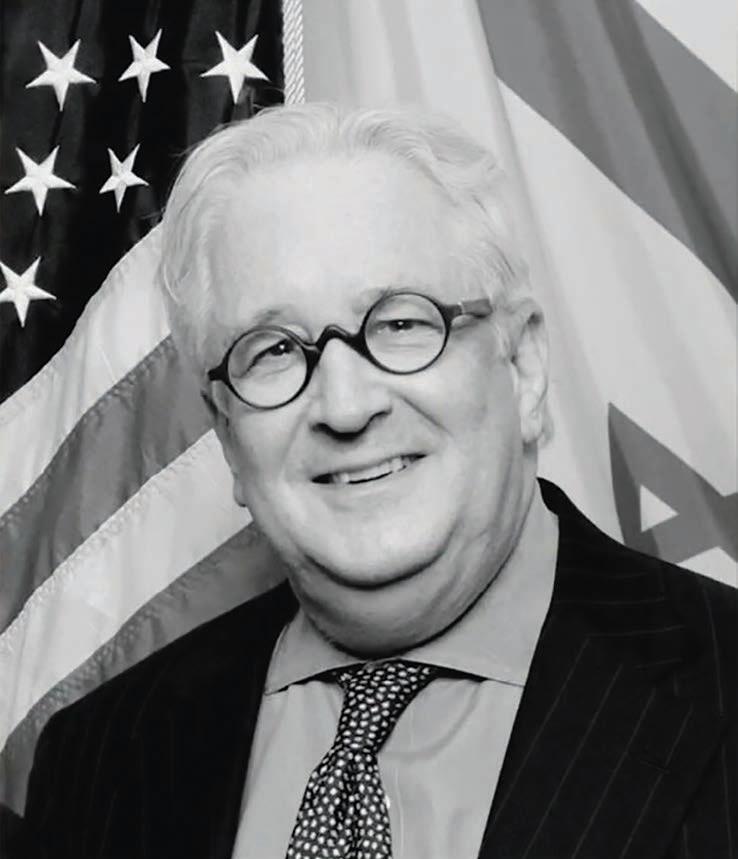
As acidic as he could be, he singled out those who sought to unify the Jews for loving praise. Remembering Richard Hirsch, the longtime Reform Judaism
leader who died in August, Wexler eulogized: “Hirsch’s enthusiasm moved all of us forward …Richard’s enthusiasm for this work was part and parcel of his vision of modern Zionism — an inclusive, embracing Zionism.”
In their remembrance of Wexler, his family struck a similar note: “His commitment to the Jewish people was driven by his belief that the world can be repaired through hard work and force of will.”
“If you don’t have enemies you haven’t stood for anything,” attributed to Winston Churchill, was one of his favorite sayings, his daughter, Deborah Sobokin, said at his funeral. “For any of you who kept up with my dad’s blog, UJ Thee and Me, you know he stood for many things.”
He is survived by his wife, Roberta, two sons, a daughter and eight grandchildren. JN
Additional reporting by Jewish News.
Homewatch CareGivers has been the premier provider of home care services for over 18 years. We bring you the peace of mind that comes from knowing your loved one is cared for like family.
support 24/7.

Jean Meltzer always knew how “The Matzah Ball,” her first novel, would end.
“The rule of romance is that there has to be a happy ending; the characters have to get together,” Meltzer told the Jewish Telegraphic Agency. “If they don’t get together, that’s not a romance; that’s literary fiction.”
So (not-really-a-spoiler alert) it was a foregone conclusion that protagonist Rachel Rubenstein-Goldblatt, a bestselling Christmas-themed romance writer who has kept her career from her observant Jewish parents, would wind up with Jacob Greenberg, her Camp Ahava crush who is now throwing the glitziest Chanukah party New York City has ever seen.
But while Rachel and Jacob’s love story conforms to the conventions of the romance novel, Meltzer sees it as subverting traditional Jewish stories that more often dwell on the difficulty or danger of being Jewish.
“I wanted to write a book for Jews where the heroes were sexy, where the men were strong, where the women were beautiful, where they got their happy ending,” said Meltzer, a selfproclaimed rabbinical school dropout and Christmas junkie.
Meltzer also wanted to spotlight a character who, like her, struggles with chronic illness. Rachel’s myalgic encephalomyelitis, also known as chronic fatigue syndrome, is invisible to those who don’t know her but shapes her life in every way, much as it has for Meltzer, who was diagnosed as a young adult and describes herself as “basically homebound.”
Meltzer spoke to JTA from her silver-
tinsel-draped home office in Northern Virginia about the impetus behind “The Matzah Ball,” why she believes the Chanukah bush has a place in Jewish homes and the power of romance novels to shape Jewish identity.

Why did you decide to write this book and what are you hoping to achieve with it?
I’ve always been a nice Jewish girl who loves Christmas. And every year I go into, say, Target, and there’s a holiday display with all of the Christmas books. Year after year, I went looking for a Chanukah book, and there never was one. I just wanted to see myself represented on that table. I could envision it: a blue and white book in the sea of red and green.
I also had an experience where my 7-year-old niece was sitting on my lap and she looked at me and she goes Auntie Jean, you have a big nose, and big noses are ugly. She goes to Jewish day school, she’s surrounded by strong Jewish women, and I thought, where did she get this message?
So when I sat down to write this book, I wanted to do something different from the stories I had grown up with, which were Holocaust stories, stories where Jews were being taken hostage by terrorists — you never really saw us as the heroes of their own stories. I wanted to write a book for Jews where the heroes were sexy, where the men were strong, where the women were beautiful, where they got their happy ending. I wrote this book primarily for myself, but it was really out of a desire to sort of just create a different type of Jewish story.
I think we all know that antisemitism is a growing problem. I didn’t want to add
to that. I wanted to write the best of my community. I wanted to write the best of Shabbat dinners that I’ve been to, the best of Jewish mothers, the best of Jewish friendships and all the fun of living in the Jewish world. I wanted people to see Jews in a different light.

In the literary world, the #OwnVoices movement has argued that stories about communities and cultures should be written by people from those communities and cultures. There’s also backlash to this idea from those who say it deprives writers of the power to invent and may cause writers to be pigeonholed. How do you see your work fitting into this debate?
Having worked with non-Jewish editors and seeing how people have reacted to the book, I can see now that I think in a very Jewish worldview that is very different from how the rest of the world thinks. Things that I sort of take for granted and nuances that I thought everybody would sort of understand, I had to realize and learn that that was not the case.
Listen, I’m a writer. I love writing. Any writer should be able to write any story. But I really think there is something to #OwnVoices. You would have to do years and years and years of research, I think, to write a book like “The Matzah Ball,” if you didn’t have the experience. I think there’s absolutely something to be said for #OwnVoices.
The book is very thoroughly Jewish — not just the characters and setting but the text, which is peppered with references to the Talmud and other Jewish texts. Who do you see as the audience?
At the end of the day I don’t know who the audience will be but I will tell you that absolutely non-Jews have picked up the book. Debbie Macomber is the queen of Christmas romance: She fell in love with the book, and not only gave me a blurb but she did my launch event recently.
The first international territory my book sold to was Sweden, which again is a place that you don’t think has a huge Jewish population, and it’s going to be [the publisher’s] Christmas lead in 2022. So, obviously, the book is resonating with non-Jewish readers and I think it’s been resonating with Jewish readers as well, which is the ultimate hope — that it reaches who it needs to reach.
Your story is about a celebration of holiday aesthetics, but there’s also a moment where the characters realize that a bunch of dreidels and menorahs just don’t have a glitzy effect. The Christmas aesthetic is so well developed, and there are so many variations on it. Why do you think the Jewish holiday aesthetic is so much less developed? I did not grow up in a family that had any type of Christmas or Chanukah decor, but I love it now. Every year I start sort of scouring for, like, a new Chanukah inflatable for the lawn, and every year it’s impossible to find something that’s good, that doesn’t look just like a tchotchke on my lawn. Even so, I’m very proud of my outdoor display — we have gone insane. We have giant blow-ups and we put up lights and it’s gotten to a point where people literally drive to see it.
In Jewish law, there are prohibitions against mimicking your foreign neighbors and things like that. So growing up I think that was very strong: There was
anymore. For me, I feel like I’ve done the work Jewishly, and I am very comfortable in my Judaism. So I don’t feel like the Chanukah bush is going to be my slippery slope that’s going to push me over the edge and change my belief system. But there is also a commandment of beautifying your holy objects, and then the commandment for Chanukah lights is that you’re supposed to publicize the miracle, right? I’m not a rabbi, but you can maybe make an argument [in favor of Chanukah lawn displays].
I’ve always been a person who likes pretty things, and especially with chronic illness and in the middle of a pandemic, holding on to my joy is such a big part of my life. And when I walk and it’s nighttime and the lights are twinkling, I feel it in my kishkes. It just makes me feel good.
If you were to pick a favorite moment in the book or the writing process, one that felt like a peak moment for you, what would it be and why?
The hardest thing for me to write, or what I think was the most important thing, was the bedazzled wheelchair. [Jacob sends a sparkly wheelchair to Rachel’s apartment
it’s invisible. Because we’re invisible, our struggles are not fully seen and because they’re not seen, they’re not understood. So this idea that like, again, it’s almost like intersectionality of identity — we think of ourselves as Jewish, but we’re more than just Jewish. A lot of us have multiple identities. By making it visible, by showing that it’s so much more normal than we realize, that’s how we get people to understand that it’s part of our experience.
And when you’re chronically ill, that moment where you want to use a wheelchair is really the moment when you’re like “holy crap, I’m really sick,” and when your disability goes from invisible to visible. So I felt it was incredibly important and powerful that women who were chronically ill and sick could see that they could be loved, even in a wheelchair. And that it’s okay to accept your disability, and then also that a man or a woman or a partner will love you in spite of whatever your disability is, will love you through all the good and bad of your life.
It was the hardest thing to write because I had never seen anything like that in a romance, but I felt like at the
What else would you want Jewish readers to know about your book?

It was written to create a joyous Jewish story. I know it’s different but I really think everyone should at least pick it up, give it a chance, give it a try. You might find that you actually like romance and romcom more than you realize. I know it’s new for the Jewish world.
I really think it’s important that young people and all of us see ourselves in stories beyond the lens of victimhood, and I really think that one of the ways we do that is by making ourselves heroes in our own stories. And this is a way to do that. Romance gives us the ability to become heroes and love interests, and champions of our own narrative.
I hope I’m not the only Jewish romance writer going forward. [Meltzer’s second book, “Mr. Perfect on Paper,” will come out next year, and she’s at work on a third.] I hope we have lots of Jewish rom coms because there’s a huge gaping hole in the market there. And, you know, I think it’s really important that we start telling stories where we get a happy ending. I know it’s not what we do, but everyone deserves a happy ending, including Jews. JN

Saturday,December4|5:00pm Registerby11/28at www.bethelphoenix.com/ hanukkah-2021
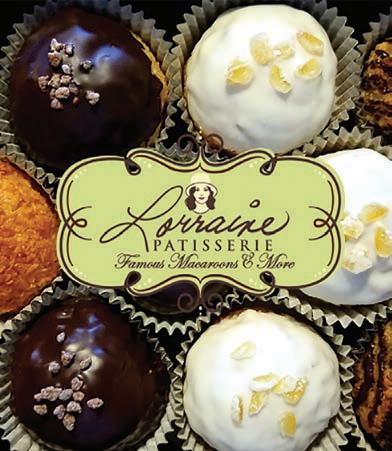


Saturday,December4|5:00pm


Our event will feature an incredible Silent Auction, a fantastic Live Auction and a behind the scenes look at the magic of Cortney’s Place.
It didn’t take long after joining the Arizona State Legislature in 2002 for Rep. Robert Meza (L-30) to realize change wouldn’t happen overnight.

He and his husband took matters into their own hands.
“Where could we have the most impact immediately on people’s lives?” they asked themselves.
Over the past 20 years they have personally helped to finance 30 students’ college tuition. The students all come from humble means and most have been first-generation immigrants who are also the first in their families to go to college. Mesa and his husband have helped them navigate the federal student aid process, apply for scholarships and have personally contributed hundreds of thousands of dollars.
“If you can fund someone to go to college, the impact it has on the rest of the family, and the younger siblings and also the cousins — it just has a huge impact. Education is a great equalizer,” he said.
Chicanos Por La Causa is recognizing the positive impact Meza has had on the community in the areas of education, behavioral health and more on Oct. 20. Meza attributes his passion for giving back in part to his resilience born out of being part of several minority groups: Meza is Jewish, gay and of Mexican descent.
which he’d have an aerial view of an old man in his 70s and a young boy about 5 walking together in the snow. In his freshman year of college, he had the same dream except for the first time it was not aerial — he could see through the 5-year-old’s eyes. “I looked up at the old man, and he’s crying. And all I can remember him saying is, ‘I can’t protect you anymore. This is it. We’ve gone our path.’” The next day he happened to read “Night” by Elie Wiesel as assigned by one of his classes.
• Accommodate inclusion services
• Create community social opportunities
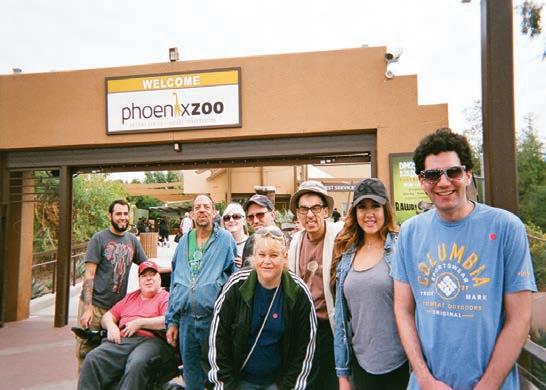
• Refer families to local and online disability resources
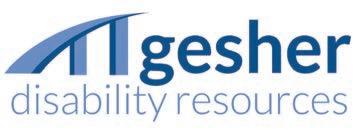
• Enable residential readiness
• Host educational forums and workshops
• Modify Hebrew school curriculum
• Conduct teacher training and student tutoring
If you need us, we are here.
CPLC has given a Cause for Change Award for the past eight years. Former honorees include civil rights icon Dolores Huerta, actor and comedian Cheech Marín, and singer-songwriter-drummer-percussionist and philanthropist Sheila E.
“As a former employee and always a valued member of the CPLC familia, State Rep. Robert Meza understands our priorities, mission and how we work to impact and empower the community,” said CPLC president and CEO David Adame.
Meza said he’s honored to receive the award since CPLC is like family to him and identifies with its “humanitarian spirit.” The acknowledgment for his own humanitarian efforts makes him feel “that I’ve been doing my job as a person on this Earth.”

Meza has always felt Jewish, but made it official last August when he converted to Judaism.
He grew up in a Catholic household, where his mom also always felt she was Jewish.
“She and I would connect on so many different levels,” Meza said of his mother, who died in 1999.
Whenever he had the opportunity to learn about Judaism or to participate in the Jewish community, “I felt like I was at home.”
Starting at 4 or 5 years old he had a recurring dream about every two years in
“I got this fear inside me and was really kind of whacked out,” he said. He went to a campus psychologist, who suggested perhaps he was in the Holocaust in a past life. He never had the dream again but began learning about Judaism.
Mike Snitz, Meza’s husband of five years and partner of 19 years, is also Jewish. When the Reform rabbinical panel accepted Meza’s conversion, it was the first time Meza ever felt “truly, truly accepted,” he said. Being part of so many minority groups has only been a strength. “I see it as being able to think out of the box,” he said.
Outside of the State Legislature, Meza owns and operates consulting business Ameliorate LLC, where he works with about seven CEOs on strategic planning and board development, medical and behavioral health marketing, and other issues. Meza has been a longtime behavioral health advocate.
He’s had two friends who have dealt with depression, and it made a lasting impact on him. “I’ve never been depressed in my whole life,” he said. “I felt so bad for them. And I thought, ‘What could I do to help?’” He’s been working with behavioral health groups to get their messages into the corporate world to help raise awareness.
“It shouldn’t be shameful,” he said, noting if somebody is going through depression, they need to know they are not alone so they can seek help.
CPLC held a virtual fundraising event Oct. 20, during which Meza was recognized.
Fourteen years after Valley Beit Midrash began in Phoenix, it is making its first outof-state expansion to Denver, Colorado.
“We researched 10 other major cities, narrowed it down to three and then found there to be the most enormous demand for what VBM has to offer in the Denver Jewish community,” said Rabbi Dr. Shmuly Yanklowitz, VBM’s executive director. “We also found amazing similarities between the two communities that could lead to very generative synergies.”
Becca Habalow joined VBM as an engagement director in October to build its Jewish learning and action center in Denver. She is engaging young Jews through new fellowships and building education partnerships, Yanklowitz said.


VBM was established in Phoenix in 2007 in collaboration with Temple Chai with the goal of bringing together a diverse cross-section of the Greater Phoenix Jewish community around Jewish learning. Since then it has also launched a social justice arm.
who joined as a program officer. She is strengthening Jewish young adult engagement through VBM’s learning and social action programs, Yanklowitz said.
Other Jewish organizations in the Phoenixarea, including the Arizona Israel Technology Alliance, the Jewish Community Relations Council of Greater Phoenix and Jewish Free Loan, are also welcoming new staffers.
Mara Pernick is the new CEO of the Arizona Israel Technology Alliance, a Scottsdalebased nonprofit dedicated to increasing and supporting bilateral trade and investment between Arizona and Israel.
Founder and former CEO Leib Bolel will continue to serve as the alliance’s president and board member in addition to his role as a partner of Grayhawk Capital.
“We are delighted to have Mara lead this organization,” Bolel said.
Pernick has more than a decade of senior management experience.
To date, the alliance has supported more than 100 Israeli companies seeking to increase ties with Arizona.
and Arizona,” said Pernick. “I look forward to working with its team and board members to continue these outcomes and take the organization forward.”
Mettannah Jacobson joined JCRC as a communications and public diplomacy fellow.
Mettannah is a recent graduate from McGill University in Montreal, Canada, where she double-majored in sociology and Jewish studies and minored in history.
“We were looking for people who have been involved on campus and who know what it means to fight for the Jewish community,” said Paul Rockower, JCRC’s executive director. “She really stood out.”
Through Jacobson’s leadership roles within McGill’s Jewish Studies Students’ Association and Jewish Experience Downtown, she has fought for Jewish students on campus in a variety of ways. She helped to strike motions in student government related to the Boycott, Divestment and Sanctions against Israel movement and other initiatives she and her peers felt were antisemitic or discriminatory against Jewish students.
our community and potential community in a very positive and smart way.”
During her fellowship with JCRC, she hopes to continue building her skills in public diplomacy and forming alliances.
“Looking at so much stuff that the JCRC has done, is doing and would like to do, is definitely a very good lesson in how to advocate and interact with different groups in a way that is positive.”
Jacobson is working remotely from Montreal.
Caroline Carriere joined the Phoenix JFL office as its administrative assistant and office manager. She is assisting with dayto-day operations, database management, development and outreach activities.
03-10-013
03-10-013 11/20/13 10:08 AM Page 1
All donations to support:
• Full e e • e is e vices
AM
In Phoenix, the local office is also growing its staff with the addition of Julia Sirota,
“I have witnessed what AITA has accomplished to date as they worked tirelessly to strengthen the connection between Israel
Jacobson said she learned to be judicious about which battles to pick and how to form alliances to make sure “that we are servicing
Carriere is a recent graduate of Arizona State University and a long-standing member of the Jewish community of Greater Phoenix. She has over 10 years of experience volunteering and working in Jewish nonprofit organizations, including with the Hillel Jewish Student Center at Arizona State University, the Martin Pear Jewish Community Center Early Childhood Center, Camp Daisy and Harry Stein and the Mark L. Haberkorn Religious School at Congregation Beth Israel. JN
critical time your donations are especially important
Activities
e t t • eci s
s • ce ssiste ivi
All Donations Are Greatly Appreciated
Donate any amount up to $800 for couples filing jointly ($400 for individuals) by 4/15/2022 via check, credit card, or on-line at www.kivelcare.org
All donations received under this special Tax Credit Program will be used to underwrite essential services for the elderly who must rely on our Community’s collective generosity.
All donations received under this special Tax Credit Program will be used to underwrite essential services for the elderly who must rely on our Community’s collective generosity.
i
Submit tax forms, which will be sent to you upon request,* with your 2021 Arizona Income Tax filing. For most, state income tax will be reduced by the amount of the donation to Kivel.
Donate on-line ive c e or complete and FAX to: (602) 957-949 , mail to: Kivel Campus of Care: Tax Credit, 3040 N. 36th St., Phoenix, AZ 85018 or Call (602) 314-4002 Please send me the A Tax Forms e v i e
Telephone ____________________________________
E-mail ________________________________________


Amount
Amount of donation: $800 $400 Other $________
❏ Check enclosed payable to Kivel Campus of Care
❏ Please charge this charitable gift to : ❏ VISA ❏ AMEX ❏ MC ❏ DISCOVER
Card#______________________________Exp.date ______
______
Signature __________________________________________
Signature __________________________________________
JEWISHAZ.COM JEWISH NEWS NOVEMBER 5, 2021 23 SPECIAL SECTION
Submit tax forms, which will be sent to you upon request,* with your 2021 Arizona Income Tax filing. For most, state income tax will be reduced by the amount of the donation to Kivel.


 ALLISON L. KIERMAN
ALLISON L. KIERMAN
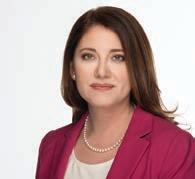
Halloween may be over, but here’s something that’s still really spooky: There are fewer than 60 days left in the year. That’s less than eight weeks to complete your 2021 charitable giving, develop or follow through on a tax strategy and make certain tax elections. Yikes!
But there’s still time to act. As you think about end of year giving, here are some current trends to consider:
Tax strategist versus philanthropist
Charitable giving is often thought of as something for those who are philanthropy minded. Charitable giving allows one to provide financial support to causes that are meaningful and make a legacy in one’s community.
For 2021, the Consolidated Appropriation Act of 2021 (the sixth COVID-related bill enacted by Congress) permits the following:
• A charitable deduction of up to $600 for couples filing jointly, $300 for individual taxpayers.

• Individual taxpayers who itemize their deductions can deduct up to 100% of their adjusted gross income.
• Corporations can deduct 25% of taxable


income in 2021.
• The donations must be in cash, to a qualified charity, not a Donor Advised Fund or private foundation, and must be made during 2021.

Utilizing a Donor Advised Fund
A DAF is like a charitable investment account. You can set one up through the Jewish Community Foundation, or another institution. A donor contributes cash, securities or other assets and is able to claim a tax deduction in the year in which assets are contributed to the DAF. However, the DAF holds the fund for future distribution to qualified charitable organizations, after consultation with the donor.
Many donors use funds in their DAF to make their annual synagogue membership contributions. It is important to note, once funds are contributed to a DAF the gift is irrevocable; and the funds cannot be later withdrawn and used for other purposes.
Conservation easement
A conservation easement is a voluntary legal agreement to permanently limit the use of land to protect its conservation values. Conservation easements are either sold or donated by a landowner to a conservation organization, typically a land trust. The easement preserves the land by restricting its development for commercial uses.
Conservation easements provide tax benefits to landowners who can claim the value of the easement as a tax-deductible charitable donation, as land is often an appreciating asset, this amount frequently exceeds the amount paid for the land.
For individuals who do not have land to donate, there may be opportunities to invest in an entity that is purchasing land in which a conservation easement is later donated. The individual donor can claim a portion of the donation on his/her personal tax returns.
These types of investments are closely scrutinized by the IRS, and may increase risk of an audit, so it is important that all proper procedures are followed.






Charitable trusts are also important tools in successful tax planning. Like a DAF, the charitable trust is created to allow for a onetime lump sum contribution that is later distributed over a longer period of time. There are two main types of charitable trusts:

• Charitable Lead Trust. This is a trust which provides a stream of income to a charity of the trustor’s choice for a period of years or a lifetime. At the completion of the period of years, or at death, whatever is left goes to trustor’s beneficiary(ies) with significant tax savings.
• Charitable Remainder Trust. This trust provides a stream of income to the trustor for a period of years or a lifetime and then gives the remainder to the trustor’s charitable beneficiaries, with significant tax savings once the trust term is complete.


Those who are over 70 ½ can donate all or a portion of their IRA required minimum distributions (RMD) directly to charity. This is called the qualified charitable distribution (QCD). Typically, IRA distributions are treated as taxable income. However, if it is a QCD, the distribution is excluded from taxable income. For those already giving annually to a religious or other charitable organization, there is a strong benefit from making the distribution a QCD instead of taking the RMD and then later making a charitable donation. As always, it is important to take into consideration both your charitable intentions and consult with a tax professional when weighing whether a tax strategy through charitable giving is right for you. JN

Martin Pear JCC Gala: 6 p.m. cocktail reception; 7 p.m. dinner and entertainment. Join the Martin Pear Jewish Community Center in honoring Neal Kurn with the William S. Levine Family Community Excellence Award and Lindsey Seitchik with the Maya Schulder Rising Star Award. Location: Arizona Biltmore; 2400 East Missouri Avenue, Phoenix. Cost: $400 per person.
For more information and to register, visit mpjcc.org/gala21/#gala21covid

SUNDAY, NOV. 7
It’s Not That Simple: Join the Martin Pear JCC, 12701 N. Scottsdale Rd., Scottsdale, for an in-person author presentation by Pam Ostrowski. If your loved one has been diagnosed with dementia or Alzheimer’s, be prepared for anything — it can be a shocking disease. Ostrowski’s guidebook, walks you through what can happen and prepares you for the challenges you may face. Cost: $10 for members, $15 for guests. For more information and to register, visit jewishphoenix.regfox.com/ meet-the-authors-series.
Community festival: Noon-4 p.m. Join the Arizona Jewish Historical Society, 122 E Culver St, Phoenix, for a community festival celebrating the 100th anniversary of the construction of the Cutler Plotkin Jewish Heritage Center. There will be music, food trucks, activities for families and children, and special guest speakers. For more information and to donate, visit azjhs.org/ cpjhc-centennial.
TUESDAY, NOV. 9
No Place On Earth: 6:30 p.m. Join the Martin Pear JCC, 12701 N. Scottsdale Rd., Scottsdale, for an in-person film screening of “No place on Earth.” In 1942, 38 men, women and children slide down a cold, muddy hole in the ground, seeking refuge from the war above in a pitch-black underground world where no human had gone before. After 511 days, the cave dwellers, ages 2 to 76, emerged at war’s end. Despite all odds, they had survived. While in the Ukraine in the 1990s, American caver, Chris Nicola, stumbled upon this mysterious cave. Sixty-seven years later he led four of the survivors back to say thank you to the cave. Chris will zoom in following the film to share his story. Cost: starting at $10. For more information and to register, visit jewishphoenix.regfox.com/movieswith-a-message-a-documentary-film-series.
SUNDAY, DEC. 12
Deli Man: 2 p.m. Join the Martin Pear JCC, 12701 N. Scottsdale Rd., Scottsdale, for an in-person film screening of “Deli Man.” Investigate the legacy and mythology of Jewish food culture and watch interviews with Larry King, Jerry Stiller and Alan Dershowitz. Indulge in the deli foods you love and learn about the traditions that make deli one of America’s great cuisines. Cost: starting at $25. For more information and to register, visit jewishphoenix.regfox.com/movies-with-amessage-a-documentary-film-series.
TUESDAYS, OCT. 12 - NOV. 16
Drawing and watercolors painting for beginners: 6-8 p.m. Join impressionism artist Tal Dvir for a workshop at the East Valley JCC, 908 N Alma School Rd, Chandler, where students will learn stages of sketching, drawing and painting with watercolors. Students will observe still-life objects and landscape photos, as well as learn about the proper use of drawing tools and watercolor paints and techniques from the masters. Open to those aged 14 and up. Cost: $120 for the six-week class. For more information,
and to register, visit eastvalleyjcc.regfox.com/ drawing-and-watercolors-with-tal-dvir.
WEDNESDAYS, OCT. 6-NOV. 10
Intermediate Mahjong: 12:30-2:30 p.m. In this class at the Martin Pear JCC, 12701 N. Scottsdale Rd., Scottsdale, learn strategies and techniques to improve your game. Though this class includes a brief overview, it is for those who have already taken a beginner class. Playing with instructor assistance will help you take your game to the next level. Cost: $100 for members, $150 for nonmembers. For more information and to register, visit apm.activecommunities.com/ valleyofthesunjcc/Activity_Search/1803.
SUNDAYS, OCT. 17-NOV. 21
ACEing Autism Tennis Program: The Tucson Jewish Community Center’s ACEing Autism tennis program for kids and teens will run every Sunday from 9-10 a.m. at the Sarver Tennis Center, at the Tucson J: 3800 E River Rd, Tucson, AZ 85718. The 6-week program is open to kids and teens ages 5-18. Cost: $120. TheJ is seeking participants as well as volunteers ages 14 and up to run it. No tennis experience is necessary to participate or volunteer. For more information and to register, visit aceingautism.org/locations/ tucson-az. To sign up to volunteer, email program director Miguel Coelho at tucson@aceingautism.org.
MONDAYS
Mahjong: 10 a.m.-12:30 p.m. Join the East Valley JCC, 908 N Alma School Rd, Chandler, in-person on Mondays for mahjong. This program is intended for players with prior experience and for those who have received the COVID-19 vaccination. Masks will be required. Cost: Free. For more information and to register, visit evjcc.org/mahjong. For further questions, call the EVJCC at 480-897-0588.
WEDNESDAYS
Generations After Descendants Forum: 11 a.m.12:30 p.m. Join The East Valley JCC’s Center for Holocaust Education, in partnership with the Phoenix Holocaust Association, for this in-person weekly discussion for children, grandchildren and descendants of Holocaust survivors, as well as those interested in learning more about the impact of the Holocaust. The first meeting of the season is Wednesday, Oct. 13. The meeting will be held outside at the EVJCC, at 908 N Alma School Rd, Chandler. The program is designed for those who have received their COVID-19 vaccination and masks will be required. Coffee and tea provided. Reservations are mandatory. Cost: Free. Call 480-897-0588 to make your reservation or visit evjcc.org/generations-after. Contact Barbara Bloom at 928-380-2360 with further questions.
THURSDAYS
Storytime at Modern Milk: 9:30 a.m. Bring your babies, toddlers and preschoolers to our weekly all ages in-person storytime at Modern Milk, 3802 N Scottsdale Rd STE 163. We will integrate favorite children’s books and songs while giving parents new ideas for play. Cost: $5. For more
information and to register, visit modernmilk.com/after-baby.
SUNDAYS
Bagels: 9-11 a.m. Join the Martin Pear JCC, 12701 N. Scottsdale Rd., Scottsdale, for Bagels And Gabbing every last Sunday of the month in-person. Grab a bagel and a cup of coffee and enjoy some time with your friends and make new ones. You must register to attend. Bagels and coffee will be provided. Cost: Free for members, $5 for guests. For more information and to register, visit apm.activecommunities.com/ valleyofthesunjcc/Activity_Search/1787.
J Youth Theater Rehearsals: Beginning Thursday, Sept. 23, the Martin Pear JCC, 12701 N. Scottsdale Rd., Scottsdale, is hosting rehearsals on Sundays (1:30-4:30 p.m.) and Thursdays (4-6:30 p.m.) for kids in second grade through twelfth grade for this year’s production: Schoolhouse Rock Live! JR. Cost: $275 for members, $350 for guests. For more information and to register, visit mpjcc.org/ theater2.
J Youth Theater Rehearsals: 2-4 p.m. Beginning Sunday, Sept. 26, the Martin Pear JCC, 12701 N. Scottsdale Rd., Scottsdale, is hosting rehearsals for kids in Kindergarten and first grade for this year’s production: Schoolhouse Rock Live! JR. Cost: $175 for members, $250 for guests. For more information and to register, visit mpjcc.org/ theaterk.
WEDNESDAYS, NOV. 3-17
Jewish Personalities in the Christian Bible: 10-11 a.m. In this Bureau of Jewish Education Class, examine the Jewish personalities in the Christian Bible. Have a Christian Bible (print or electronic) in time for the first class meeting. The in-person class will be at the Ina Levine Jewish Community Campus, 12701 N Scottsdale Rd., Scottsdale. Cost: $58. For more information and to register, visit bjephoenix.org/course-events/2021/11/03/ jewish-personalities-in-the-christian-bible.
Jews in Far-off lands: 12:30-1:30 p.m. In this Bureau of Jewish Education Class, explore through art what Jews living diverse lives in Syria, Yemen, Ethiopia, Kurdistan, Uzbekistan, Persia, and India, among others, fashioned for themselves and contributed to the world. The in-person class will be at the Ina Levine Jewish Community Campus, 12701 N Scottsdale Rd., Scottsdale. Cost: $58. For more information and to register, visit bjephoenix.org/course-events/2021/11/03/ jews-in-the-far-off-lands-of-other-continents.
TUESDAY, NOV. 9
Embers of Pilgrimage: 1-2 p.m. This event will be a book interview of Dr. Fishbane’s latest work of original poetry entitled: “Embers of Pilgrimage.” Rabbi Dr. Aubrey Glazer, who wrote
the interpretive introduction, will offer a voice in drawing meaning from the poetry while in conversation with Dr. Fishbane. Rabbi Dr. Aubrey is also the Director of The Panui Institute, of which this book is a project. Cost: $18. For more information and to RSVP, visit valleybeitmidrash.org/event.
THURSDAY, NOV. 11
Isaac Newton, Ferdinand Magellan, and Halachic Definitions of Up and Down: 3-4 p.m. Dr. Jon Greenberg will explore how the discoveries of Isaac Newton and Ferdinand Magellan changed the halachic definitions of up and down, and other big questions. Cost: $18. For more information and to RSVP, visit valleybeitmidrash.org/event.
MONDAY, NOV. 15
Author Presentation: 5 p.m. Alice Hoffman, author of “The Book of Magic: A Novel,” will virtually discuss her book, in a series presented by the Marcus Jewish Community Center of Atlanta Book Fest in Your Living Room and the National JCC Literary Consortium. Cost: $11 without a copy of the book, $36 with a copy of the book. For more information and to register, visit showclix. com/event/alice-hoffman-book-of-magic-novel/ tag/scottsdale.
TUESDAY, NOV. 16
Geneology: 10 a.m. Join the East Valley JCC for a virtual presentation by the Daughters of Jacob Genealogy called, “Bridge Generation: Preserving Your Family’s Story,” exoloring the benefits and challenges of preserving your family history. Cost: Free. For more information and to register, visit evjcc.org/tuesdays.
WEDNESDAY, NOV. 17
Honeybees and Torah: 1-2 p.m. Rabbi Amalia Haas asks how are honeybees portrayed in bibilical and later Jewish sources? Why is honey kosher? What is the status of other hive products – bee pollen, propolis, royal jelly? Join Rabba Amalia to discuss this and other issues relating to bees. Cost: $18. For more information and to RSVP, visit valleybeitmidrash.org/event.
THURSDAY, NOV. 18
Jews Should Keep Quiet: 2 p.m. Join the Arizona Jewish Historical Society for this virtual book discussion on “The Jews Should Keep Quiet,” by Rafael Medoff. Based on recently discovered documents, The Jews Should Keep Quiet reassesses the hows and whys behind the Franklin D. Roosevelt administration’s fateful policies during the Holocaust. Cost: Free. For more information and to register, visit azjhs.org/the-jews.
SUNDAY, NOV. 21
Author Presentation: 4:30 p.m. Wayne Federman and Annabelle Gurwitch, authors of “The History of Standup,” will virtually discuss their book, in a series presented by the Marcus Jewish Community Center of Atlanta Book Fest in Your Living Room and the National JCC Literary Consortium. Cost: $11 without a copy of the book, $50 with a copy of the book. For more information and to register, visit showclix.com/ event/wayne-federman-annabelle-Gurwitch/tag/ scottsdale.
MONDAY, NOV. 29
Hanukkah: 1-2 p.m. Chanukah is a prime example of a post-biblical festival—but it has left its tracks in the Bible, and is based on biblical texts. Professor Marc Zvi Brettler will look at the earliest evidence we have for this festival, and how it has changed over time. Cost: $18. For more information and to RSVP, visit valleybeitmidrash. org/event.
TUESDAY, NOV. 30
Holiday at the J: 10 a.m. Join the East Valley JCC for a virtual presentation by Temple Beth Sholom of the East Valley Rabbi Herschel Brodie about Chanukah. Cost: Free. For more information and to register, visit evjcc.org/tuesdays. JN





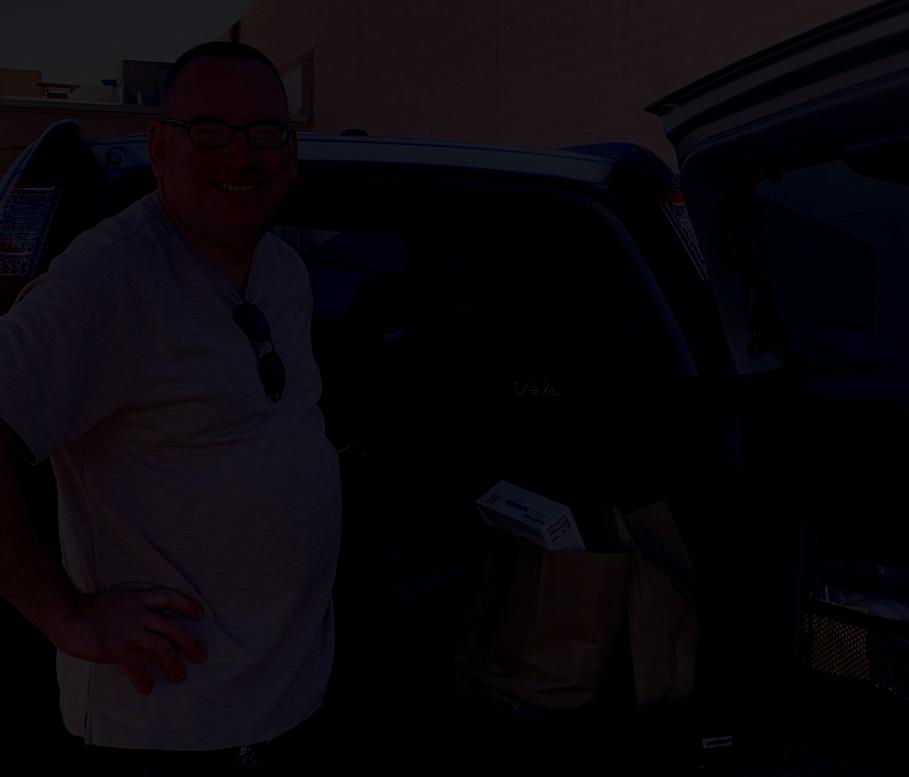



Ethan Benjamin Garber becomes a bar mitzvah on Nov. 13, 2021, at Temple Kol Ami. He is the son of Nicole and Brian Garber of Scottsdale.
Grandparents are Merle and Jeff Leyton of Scottsdale; and Sheila and Paul Garber of Scottsdale. For his mitzvah project, Ethan is participating in Kol Ami’s food drives, collecting turkeys for the annual Turkey Train and visiting senior centers. A student at Desert Shadows Middle School, Ethan enjoys playing basketball at school and for a club team, and is a big sports enthusiast in general.

Lila Shirley Borovay, 93, of Sun City West, passed away on Oct. 23, 2021, of complications from COVID-19 at Santé of North Scottsdale. She was born June 27, 1928 in Chicago. Lila married Melvin in 1947 and moved to Phoenix in the early 1950s.

Lila was predeceased by her husband of 63 years, Melvin; parents, Harry and Rose Hyman; brother, Al (Gladys) Hyman; Sister-in-law, Bernice (Leonard) Siegel; and niece, Selma Francene.
She is survived by her children, Jeffrey (Gayle) Borovay of Dallas; Janice (William Mitchell) Borovay-Montana of Sun City West; Joan (Norman) Gordon of Denison,Texas, Joel (Dian) Borovay of Paradise Valley; six grandchildren and seven great-grandchildren.
Those wishing to make a donation may do so to Jewish Family and Children’s Services or the Jewish Free Loan at 3443 N Central Ave, Unit 707, Phoenix, AZ 85012.
NELSON SAMUEL MAGEDMAN
Nelson Samuel Magedman, 84, died Oct. 13, 2021. He was born in Detroit and lived in Sun City.
He is survived by his spouse, Kathryn Magedman; his sons, Seth, Mordechai, James and Noach Magedman; 20 grandchildren and two great-grandchildren. Services were held at Mt. Sinai Cemetery. Arrangements by Sinai Mortuary.
ROBERT PLOUS
Robert Plous, 85, died Oct. 20, 2021. He was born in Michigan and lived in Scottsdale.

He is survived by his spouse, Rochelle Plous; his daughter, Lisa Black; his sons, Preston, H. Steven and Jon Plous and Scott Rogoff; and 10 grandchildren. Services were held at Mt. Sinai Cemetery. Arrangements by Sinai Mortuary. JN
HOWARD SCHWARTZ - Surrounded by loved ones in Scottsdale, Arizona, Howard Schwartz left us far too soon on Oct. 12, 2021. An active and vibrant 83-year-old, Howard was sadly stricken by the West Nile Virus in late September. The oldest of three children, Howard was born in Detroit, where he lived until 1977 when he moved with his young family to Scottsdale. During the 57 years that Howard practiced law in Arizona, he was one of the first public defenders in Maricopa County and spent 25 years as Deputy County Attorney, also serving as a Special Assistant U.S. Attorney in the Federal Organized Crime and Racketeering Bureau. Howard simultaneously pursued his passion for real estate and invested in land and residential development across the Valley. Other special highlights of Howard’s career and philanthropy include admission to practice before the U.S. Supreme Court, and serving as Chairman of the Arizona State Lottery Commission, Treasurer of the Beth El Congregation Board of Directors, and attorney coach of a high school mock trial team. He was also an active member of the Jewish Community Relations Council, Jewish National Fund Lawyers for Israel and Train Collectors Association.
Family was Howard’s central focus. He was a devoted grandfather who derived great joy from attending his grandchildren’s activities and sporting events. Vacations primarily consisted of ski trips with as many as 18 family members. Other family travel included attending baseball games at different stadiums across the country and taking trips to Israel, Australia, Europe, and Asia. Howard also enjoyed a safari in South Africa, hiking the Grand Canyon, sailing in San Diego, playing golf, and taking long walks. He was a student of history, an avid art collector and reader, and outdoor enthusiast. Howard was well known around the Valley and often recognized in his 1974 Stingray Corvette.
Howard is survived by his wife of 54 years, Brenda (Katcher) Schwartz, their two daughters - Elan Levey (Andrew Levey) and Marni Harp; his sister - Lynda Giles (Conrad Giles) and brother - Melvin Schwartz (Cindy Schwartz); four grandchildren - Jake, Bennett, Shane and Sloane; and a large extended loving family.


In lieu of flowers, the family asks that donations be made in Howard’s name to Jewish National Fund (480.447.8100 Ext. 987) (JNF.org/donate) or Congregation Or Tzion (480.342.8858) (www.congregationortzion.org/give/donate/).
all information is true and complete: Richard Kasper, 11/01/2021


